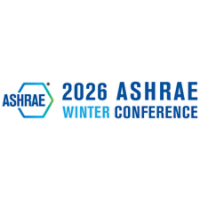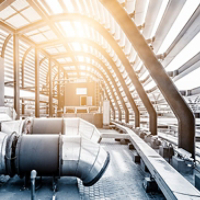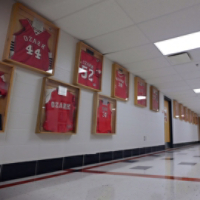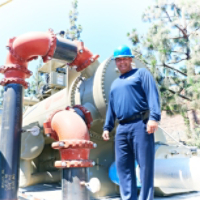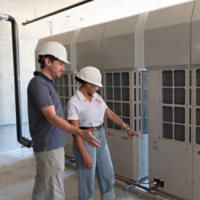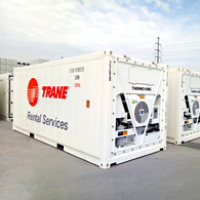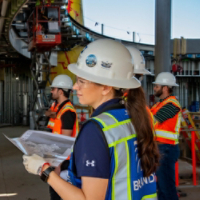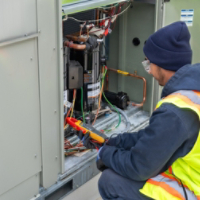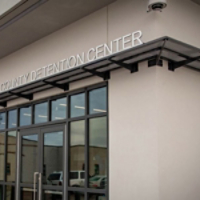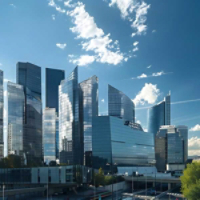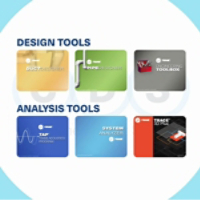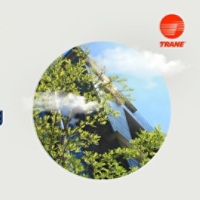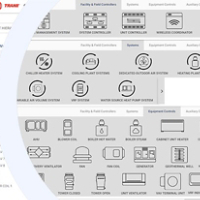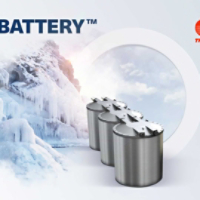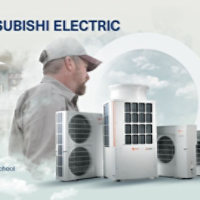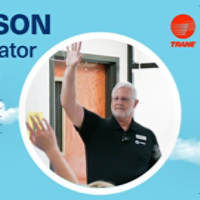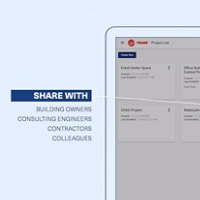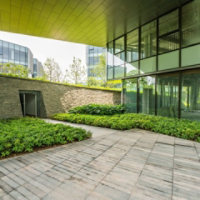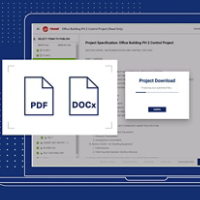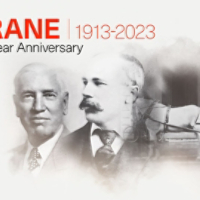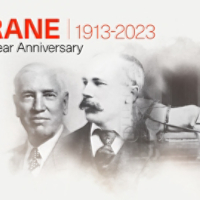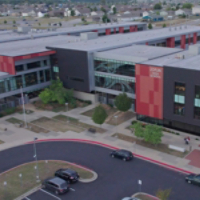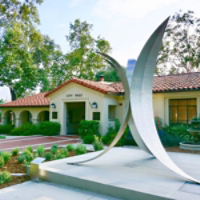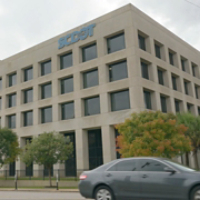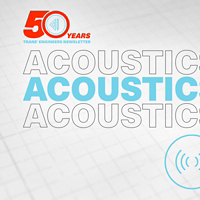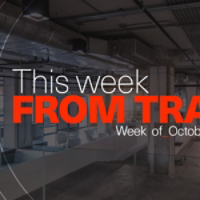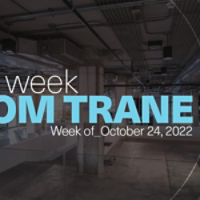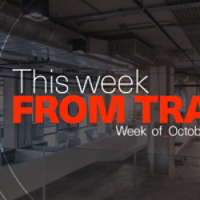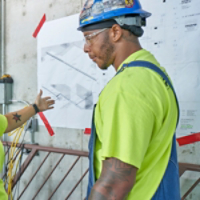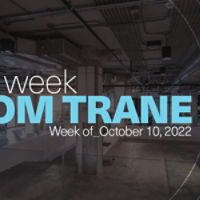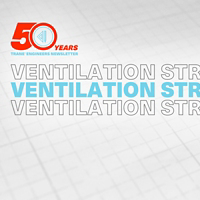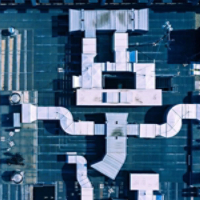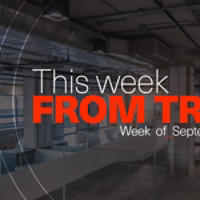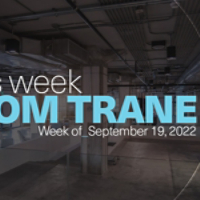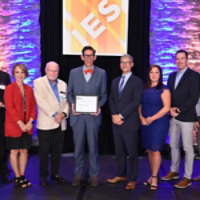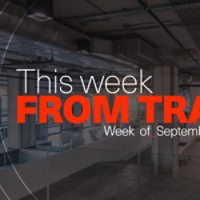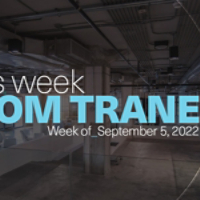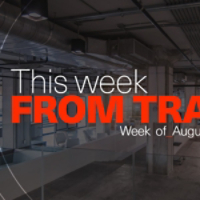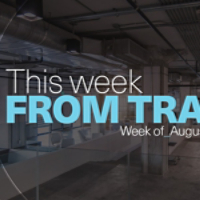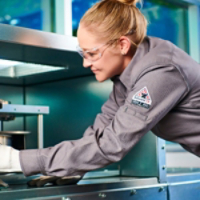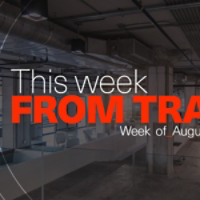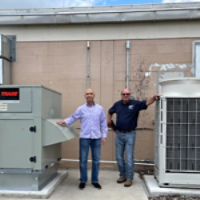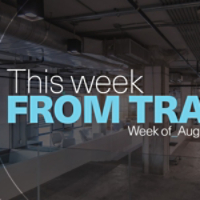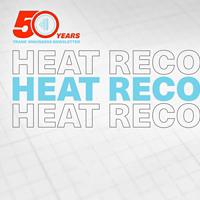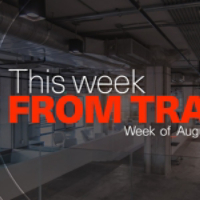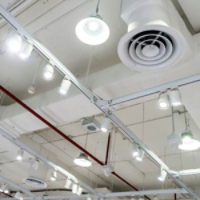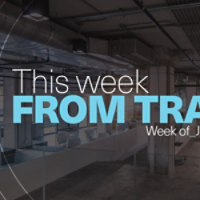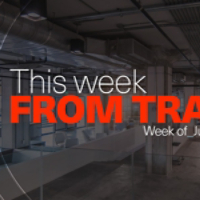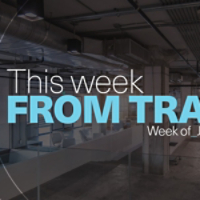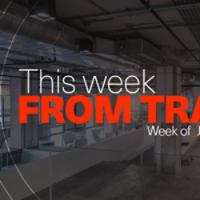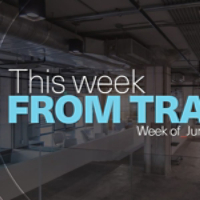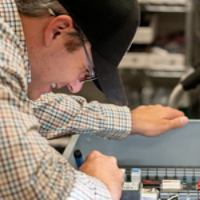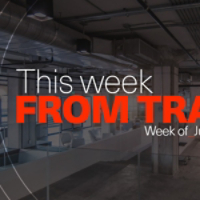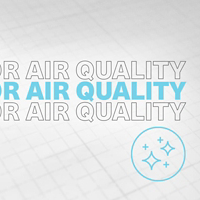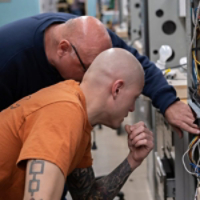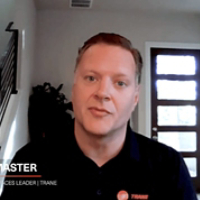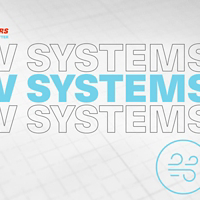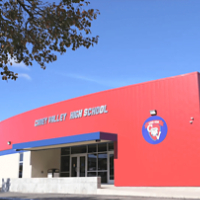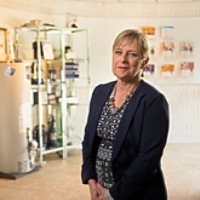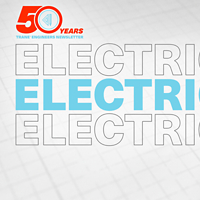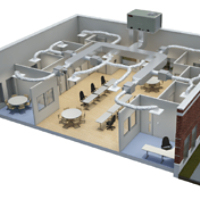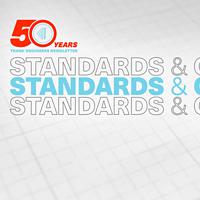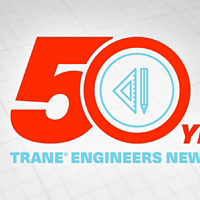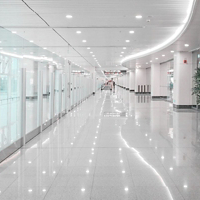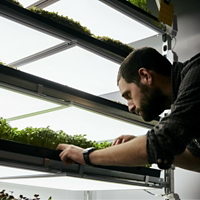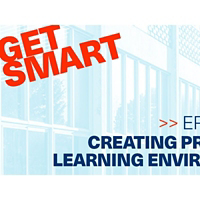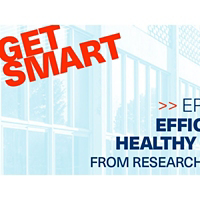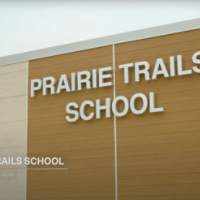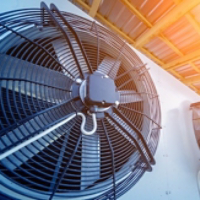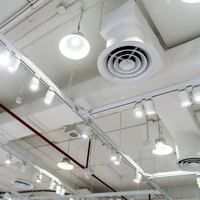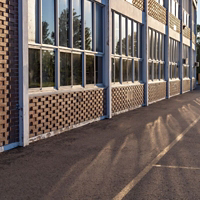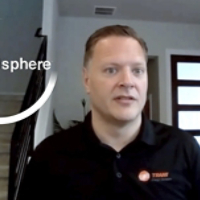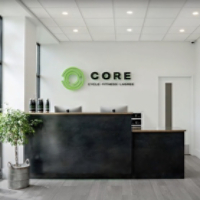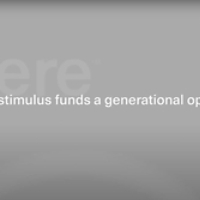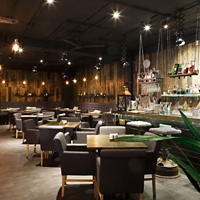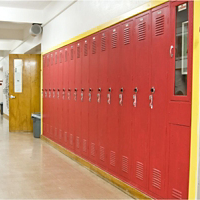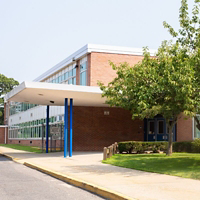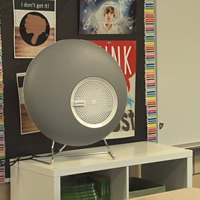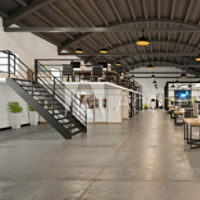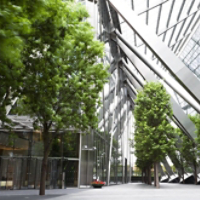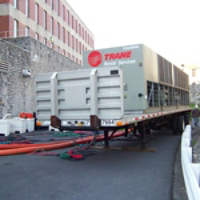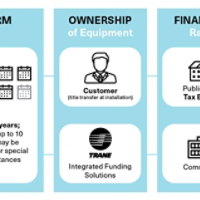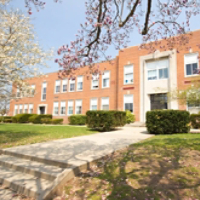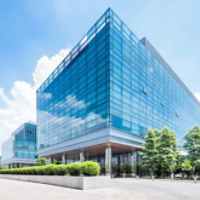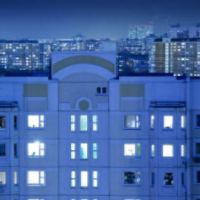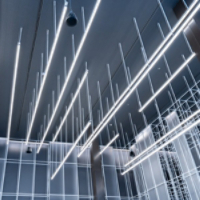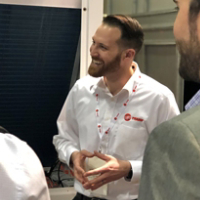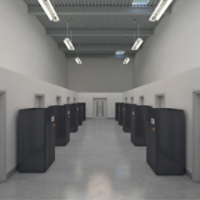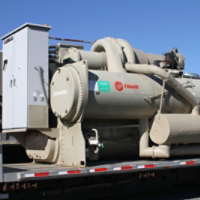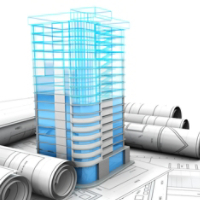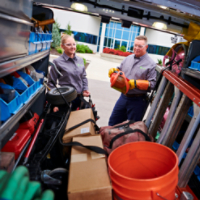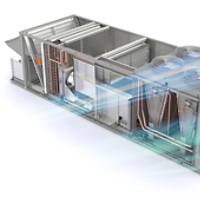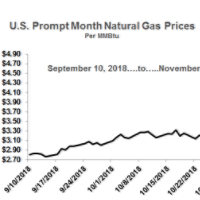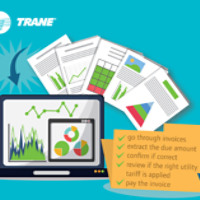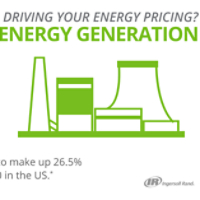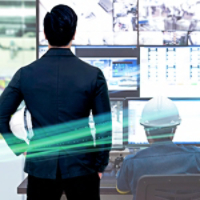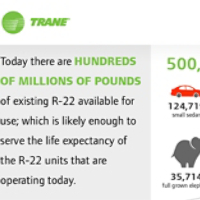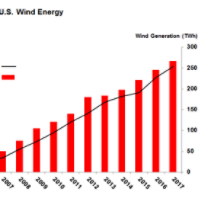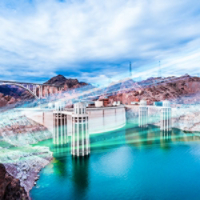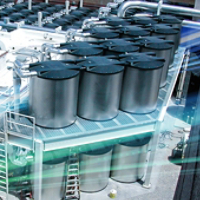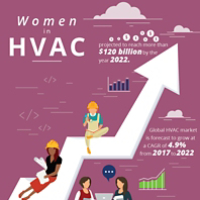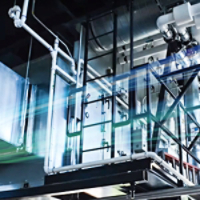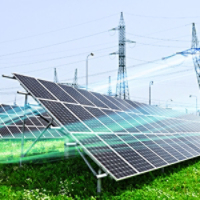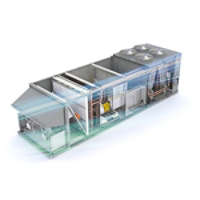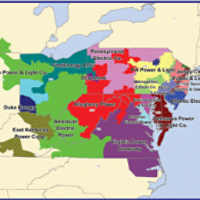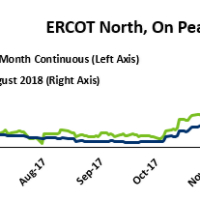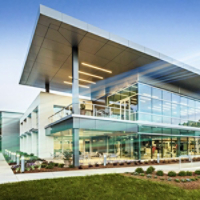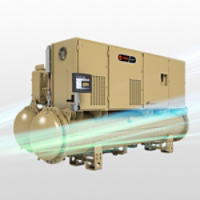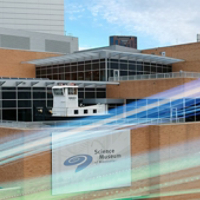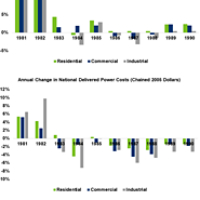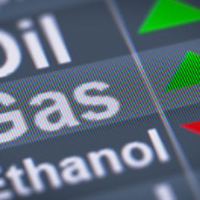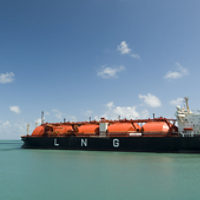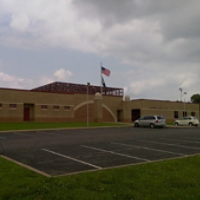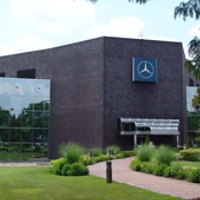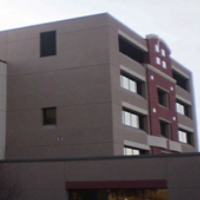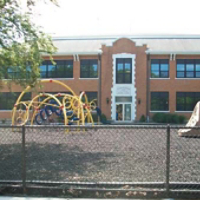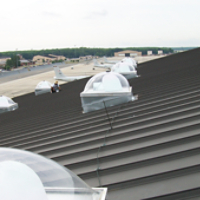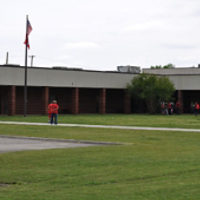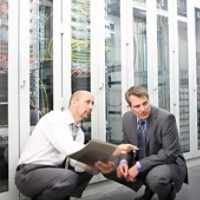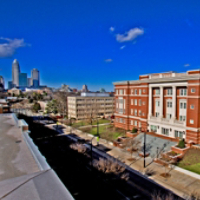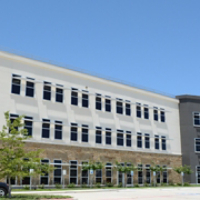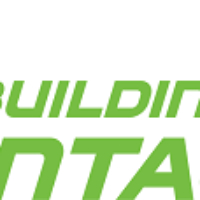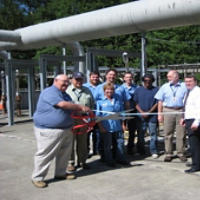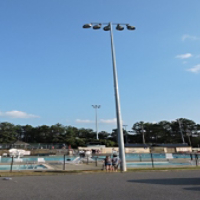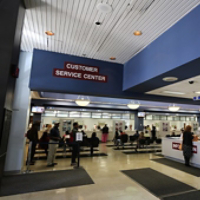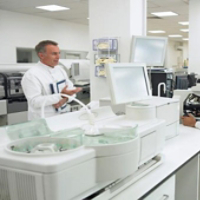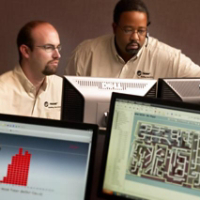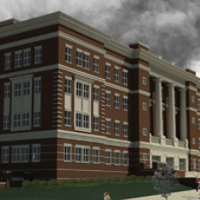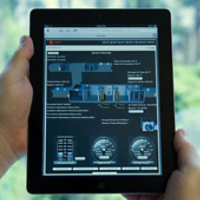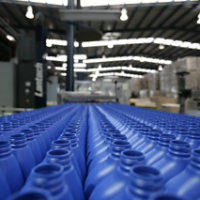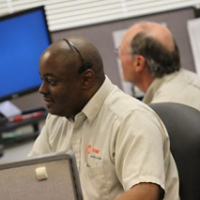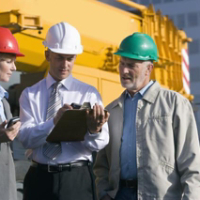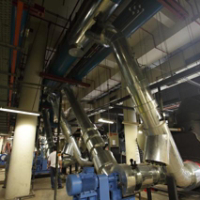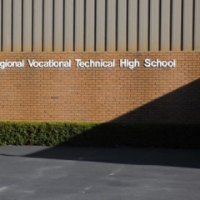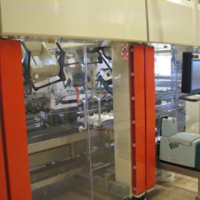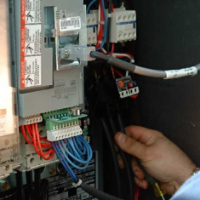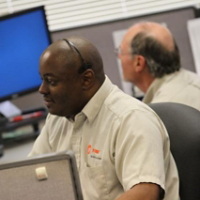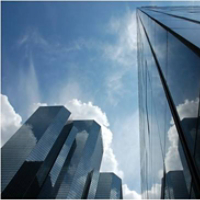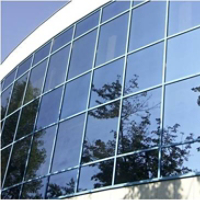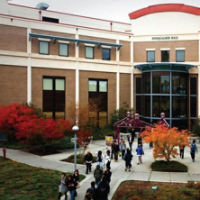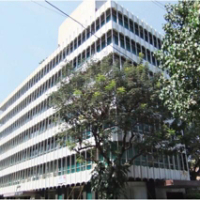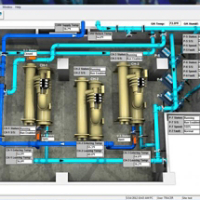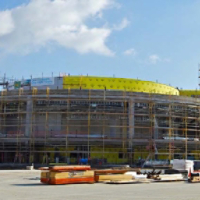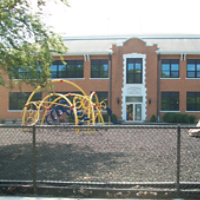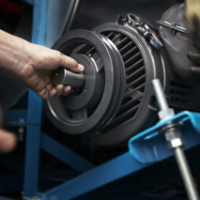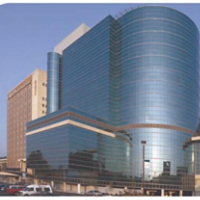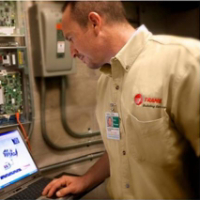-
A Century of Innovation: Trane Celebrates the 100th Anniversary of the Coil
Celebrating 100 years since Reuben Trane’s revolutionary coil invention, the innovation that transformed modern heating, cooling, and the HVAC industry. -
Trane Awarded CEC Certification for ASHRAE® Guideline 36
Trane is leading the way with ASHRAE Guideline 36 compliance, receiving California Energy Commission (CEC) certification on January 7. -
Industry Hot Topics at the ASHRAE 2026 Winter Conference
Discover which experts from Trane will be presenting and what topics they will cover at the upcoming ASHRAE Winter Conference in Las Vegas January 31-February 4, 2026! -
-
Designing for Data Center Resiliency
Protecting our important data center infrastructure and making it resilient through extreme weather events is critical to our modern operating world. We must approach designing new buildings and retrofitting existing data center infrastructure to be able to withstand extreme temperatures with a sense of urgency. -
Embracing Resiliency: Paving the Way to Sustainable Healthcare
Healthcare resiliency means adapting and ensuring reliable operations with innovations for sustainable, efficient environments. -
Carbon Neutral Data Center Cooling
Cooling remains one of the most energy-intensive aspects of data center operations. However, with careful design strategies, it is possible to achieve carbon neutral cooling. -
How Thermal Comfort Factors into Indoor Environmental Quality
What is thermal comfort, and how does it influence indoor environmental quality? Discover how the experts at Trane can help you improve IEQ by increasing comfort. -
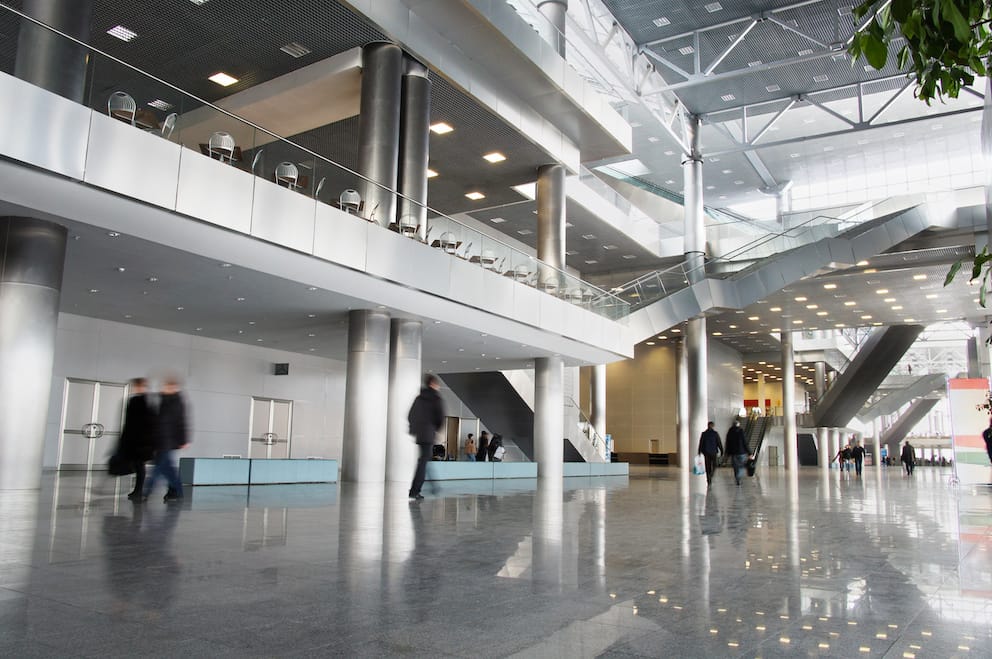
Lighting’s Key Role in Indoor Environmental Quality
What role does lighting play in indoor environmental quality? Let Trane's experts explain the benefits of lighting design done well for IEQ. -

How Acoustical Design Factors into Indoor Environmental Quality
Learn how acoustical design contributes to indoor environmental quality and how to improve it with help from the experts at Trane Commercial HVAC. -
-
How Thermal Comfort Factors into IEQ
What is thermal comfort, and how does it influence indoor environmental quality? Discover how the experts at Trane can help you improve IEQ by increasing comfort. -
-
Waste Heat Recovery for Data Centers
Esti Tierney, Product Manager - Centrifugal Chillers for Trane, explores how to give purpose to all the power and energy we already have and turn it into a strategic advantage. -
-
VRF: Staying Cool through the Refrigerant Change
As refrigerant regulations evolve, Trane VRF systems lead with efficiency, flexibility, and sustainability. Learn how the VRF industry is adapting to new regulations. -
6 Ways Cold Storage Rentals Improve Efficiency
Discover how a refrigerated container rental enhances energy efficiency, reduces costs, and ensures reliable storage for your temperature-sensitive goods. -
Smart Building Cybersecurity: Risks, Fears and Solutions
As building automation systems become increasingly interconnected, builders, manufacturers, and owners can work together to benefit from them without compromising security. -
Engineering Destiny: Chrystelle Le Roux’s Journey with Brandt
Construction project manager leverages curiosity, family history, and work ethic to get things done. -
-
-
-
-
-
-
-
-
-
-
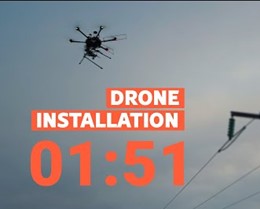
-
-
-
Achieve Building Decarbonization With Modern Controls
Buildings are a major source of emissions, primarily from burning fossil fuels for heating, cooling, and powering appliances and lights. HVAC systems equipped with advanced controls can significantly reduce operational carbon emissions. -
-
Meet Trane’s CDS Design and Analysis Tools
Designing mechanical systems for commercial buildings requires managing small details, big decisions and complex analysis – all while keeping building owners happy. Trane’s suite of CDS Design and Analysis tools are purpose-built to support your design process from initial system selection and concepting, through energy load analysis and detailed design development. -
-
-
Simplify System Control Strategy and Design with Trane® Design Assist™
Designing a modern, connected building automation system requires balancing a range of factors from increased occupant expectations around comfort control to changing energy efficiency standards and broader sustainability and decarbonization goals. Trane® Design Assist™ is a collaborative design tool built to put proven control strategies and industry best practices at your fingertips. -
-
Trane CDS: Your On-Demand Load Design and Energy Analysis Tool Support
Trane offers a suite of load design and energy analysis tools like TRACE 3D PLUS. We know that when you need support using these tools, you need it now. The Trane Customer Direct Service (CDS) group is your go-to resource for collaboration during the design process to troubleshoot applications and specifying challenges. -
-
-
TRACE® 3D Plus: Simplify Multi-Story Design with Zone Multiplier
TRACE® 3D Plus is the industry go-to for load calculations and energy analysis. See first-hand how TRACE® 3D Plus Zone Multiplier could save you time on your next energy analysis project. -
Meet Trane's Educator in Residence Bill Nelson
Meet Trane's Educator in Residence, Bill Nelson, and learn how he acts as a bridge between industry and the classroom through the Trane BTU Crew™, our interactive curriculum that brings STEM learning to life using students' own school building as an educational tool. -
A Centralized Approach to Multi-Site Decarbonization
Your journey to achieve environmental sustainability goals can become more complicated when you have multiple facilities and facilities located in different geographies. Finding a partner to help consistently implement carbon reduction solutions and strategies across a portfolio can be a key factor in effectively reducing greenhouse gas emissions and achieving validated outcomes that can be measured and reported. -
-
Electrification: A Pathway to Carbon Reduction
Electrification can be an important element in a plan to meet sustainability and carbon reduction goals. Listen to Trane expert, Charlie Jelen, as he provides key considerations to help maximize the benefits of electrification for your building and organization – from carbon reduction to cost savings. -
Increase Design Efficiencies with Complete Project Specifications from Trane® Design Assist™
Documenting open and compatible Building Automation systems has never been more efficient with Trane® Design Assist™ at your fingertips. -
3 Ways Distributed Energy Resources Help Add Value to Your Building and Operation
Distributed Energy Resources (DERs) and microgrids can create organizational value by helping manage energy expenses, ensure reliability and resiliency, and accelerate sustainability efforts. -
From Design to Operation: Award-Winning Lifecycle Solutions from Trane®
For 2023, Trane is proud to announce that Trane® Connected Service and Ascend® Air-to-Water Heat Pump, Model ACX have each received Product of the Year awards from Consulting-Specifying Engineer (CSE). -
-
Make Project Sharing Easier with Trane® Design Assist™
Trane Design Assist™ is a complimentary web-based Building Automation System design and collaboration tool. See how easy it is to collaborate and share work among colleagues, clients, and your Trane account team. -
-
-
-
Celebrating 110 Years of Making Buildings Better
We are proud to celebrate 110 years of innovation and look forward to 110 more. -
Joplin High School Implements Energy Savings Strategies
District leaders wanted to reduce the building’s energy and operational costs and address indoor air quality (IAQ) concerns while increasing staff productivity. Based on their more than 20-year relationship with Trane, they turned to consultants at the building technology and energy solutions company for answers√ -
Central Piedmont Community College Customer Story
Based in Charlotte, North Carolina, Central Piedmont Community College (CPCC) is one of the largest community colleges in the country with over 30 buildings across 6 campuses. -
-
-
South Carolina Department of Transportation Headquarters Building Cuts Energy Use by 41%
South Carolina Department of Transportation (SCDOT) partnered with the experts at Trane to reduce their building’s energy use by 41 percent while helping to improve building comfort, indoor air quality and lighting. -
-
Donation Supports New Shepherd Hotel’s Hospitality with a Purpose
A recent donation supporting Shepherd Hotel in making a positive impact on guests and the Clemson, SC community. -
The Long-Term Impact of Trane’s Graduate Training Program
The knowledge and relationships students acquire during Trane’s Graduate Training Program can make a career and last a lifetime. -
Acoustics: 50 Years of the Engineers Newsletter
As mentioned in our January blog post, 2022 marks the 50-year anniversary of Trane’s Engineers Newsletter publication! This month we hear from EN author, Trane Systems Development Engineer Dustin Meredith. -
OLD City of Claremont saves $1.4 million with better buildings initiative
Together, Trane and Claremont leveraged the buildings that residents rely on most to fund community infrastructure modernization needs and accelerate decarbonization goals - without relying on additional tax dollars. -
Grant Opportunities Imminent: Fund Energy Upgrades at Your School
Improve your school's energy efficiency and reduce your energy and operational costs with funding from Infrastructure Investment and Jobs Act (IIJA). Learn about the timing, coverage and scope of the IIJA grant and more. -
What are the primary objectives of an Energy Management System?
Discover the primary objectives of an energy management system, why it is an important piece of your decarbonization journey and how Trane can help. -
Optimize Your Building’s IAQ to Support Student Well-Being This Winter
What can you do to help ensure that your building provides an optimized environment to support well-being for students, teachers and staff as national illness rates soar? -
What is an energy efficient building?
In recent years, much attention has been focused on the concept of energy efficiency. Companies of all sizes are prioritizing decarbonization and other energy saving efforts by creating short- and long-term sustainability plans. -
Thermal Storage: 50 Years of the Engineers Newsletter
The changing of the seasons and approaching cold weather creates a perfect time to discuss a new way to use ice storage for the electrification of heat. And the timing is also very relevant, as US building owners can now take an investment tax credit for thermal energy storage systems! -
Connected Buildings: How Buildings Communicate
Buildings talk. Understanding them can reduce energy costs, cut carbon emissions, ensure comfort, and positively impact the world. Learn about building communication protocols. -
This Week From Trane: Week of October 31, 2022
Through our people, passion, and purpose, we create comfortable and energy-efficient environments around the world. Tap into the minds of Trane thought leaders in our weekly blog round-up that connects you with the latest industry insights, innovations, and inspiration on optimizing indoor environments across an array of markets we serve. -
Electrifying Buildings with VRF Technology
Heating systems that run on natural gas and other fossil fuels have been keeping America’s buildings warm for decades. But now, as many in the private and public sectors are doubling down on commitments to mitigate climate change and create more sustainable spaces, that era may be ending. -
Learning from Experts to Become an Expert
Jessica Ely grew up in Western Pennsylvania and fondly remembers visiting her grandparents on the other side of the state, near Philadelphia. Her grandfather worked in the building industry as an inspector and would often take her with him to work. -
Trane’s Graduate Training Program: HVAC Bootcamp
Twenty-week class provides intensive education on everything from physics to professional practice. -
This Week From Trane: Week of October 24, 2022
With decarbonization, electrification, energy efficiency, and other ever-changing hot topics being discussed, where can you go for reliable info relevant to your world? Turn to Trane thought leaders who go behind the curtain each week with new blogs sharing industry insights, innovations, and inspiration on optimizing indoor environments across an array of markets we serve. -
Clarifying Misconceptions around BAS Communications
For engineers, understanding building automation system (BAS) communications can pose challenges in your design process. With so many viable options for every building, knowing which ones to use and when to use them can be confusing. As a result, building communications are frequently misconstrued in the industry. To help clarify, we’re shedding light on some of these common misconceptions. -
What is the cause of carbon emissions by buildings?
Carbon emissions (or carbon production) is a general measurement of the amount of CO2 generated through direct, indirect, or value-chain emissions. Discover the common causes of carbon emissions in buildings. -
Savvy Stewardship: Invest ESSER Funds Now to “Future Proof” Your Building
Effective learning goes beyond ensuring that you have great teachers. Empowering them with educational tools and the right learning environment plays a critical role in helping students thrive -
This Week From Trane: Week of October 17, 2022
Through our people, passion, and purpose, we create comfortable and energy-efficient environments around the world. Tap into the minds of Trane thought leaders in our weekly blog round-up that connects you with the latest industry insights, innovations, and inspiration on optimizing indoor environments across an array of markets we serve. -
Welcome Women in HVAC and the Trades
From contractors to engineers to welders to maintenance and service technicians, skilled employees are the number one resource the HVAC industry depends upon most to meet the growing demand for comfortable indoor climates. -
In this 3-part Insights from an Expert series, we are exploring the practical solutions Trane can provide to help you take advantage of electrified heating as a mechanism for achieving decarbonization goals. In today’s discussion, we dig into how HVAC Building Services and Intelligent Services are a critical piece of any customer’s sustainability story.
-
In this 3-part Insights from an Expert series, we are exploring the practical solutions Trane can provide to help you take advantage of electrified heating as a mechanism for achieving decarbonization goals. In this post, we’ll explore how energy services and controls can support you on your journey to electrification, including helping you to fund electrification projects.
-
Insights from an Expert: A Discussion on Reducing or Eliminating Fossil Fuels from your HVAC System
In this 3-part Insights from an Expert series, we are exploring the practical solutions Trane can provide to help you take advantage of electrified heating as a mechanism to achieving decarbonization goals. We will start by exploring the portfolio of all-electric and hybrid HVAC equipment Trane can provide and popular solutions customers are exploring to achieve decarbonization goals. -
Clarifying Misconceptions in Lighting and HVAC Integration
What’s changed to shift the lighting conversation to consulting engineers rather than electricians? Every technology prior to LED has been based on a prescribed form factor lamp with either a filament rate or a gas discharge. These lights could simply be turned on or off. -
This Week From Trane: Week of October 10, 2022
With decarbonization, electrification, energy efficiency, and other ever-changing hot topics being discussed, where can you go for reliable info relevant to your world? Turn to Trane thought leaders who go behind the curtain each week with new blogs sharing industry insights, innovations, and inspiration on optimizing indoor environments across an array of markets we serve. -
What are the best ways to reduce your carbon footprint?
Staying relevant in today’s competitive market can be challenging, especially since there's more to success than simply meeting traditional business goals. -
Insights from an Expert: Building Automation and Healthcare with Michael Leach
Mike Leach leads building automation sales for the Florida Region. He has been with Trane since 2009 in progressive positions as Sales Engineer, Controls Operations Manager, Systems Sales Manager, and his current role. Mike is based out of the Tampa office with his wife and two daughters. He is a licensed professional engineer and has a bachelor’s degree in engineering and a Master of Business Administration, both from the University of Florida. -
How to Design a Data Center with Heatwave Resiliency at its Core - Part 2
With temperatures rising across the globe and heatwaves becoming increasingly common, designing data centers to be resilient through extreme weather events has never been more important. But how exactly do you approach designing and building a data center today that can withstand future climate shifts? -
Ventilation: 50 Years of the Engineers Newsletter
As mentioned in our January blog post, 2022 marks the 50-year anniversary of Trane’s Engineers Newsletter publication! This month we hear from a frequent EN author, Trane applications engineer John Murphy. -
How many hours is your chiller unsupervised?
Traditional On-Site Service utilizes on-site inspections to log the chiller operation on that specific day. This standard service method only provides an operational "snapshot in time" analysis. If you are using a typical quarterly inspection schedule, that’s 2189 hours between inspections or 6567 hours/year of no visibility to how your chiller is operating! -
Do you know what downtime is REALLY costing you?
When talking with manufacturers about the potential costs of downtime, we regularly hear that it is difficult to quantify all the components that factor into the true cost of downtime. There are three obvious costs that most companies consider and can easily calculate: -
This Week From Trane: Week of September 26, 2022
Through our people, passion, and purpose, we create comfortable and energy-efficient environments around the world. Tap into the minds of Trane thought leaders in our weekly blog round-up that connects you with the latest industry insights, innovations, and inspiration on optimizing indoor environments across an array of markets we serve. -
Upcoming Events Spotlight: Building Resiliency and Decarbonization into Data Centers
The changing climate means rising temperatures in many places around the world. And while many industries are feeling the impact, building resiliency in data centers is particularly critical. -
Energy security is vital for national sustainability. Achieving resilience through advanced grids, microgrids, and renewable energy enhances efficiency and reliability. Learn more about HICAPS' role.
-
Energy Monsters that can take over your healthcare facility
Is it October? We need to look at some monsters, but not the goblins and ghouls that come out at this time of year. We’re talking about energy monsters that take over facilities! -
A (Net) Positive Outlook on Energy
Sustainable practices have become a key part of the planning process when it comes to assessing building assets today. Over one-fifth of the world’s 2,000 largest public companies have net zero commitments according to the report “Taking Stock: A global assessment of net zero targets.” These companies together represent annual sales of nearly $14 trillion. While we once strived for net zero, is that enough or can we push ourselves to go further and achieve net positive? -
This Week From Trane: Week of September 19, 2022
With decarbonization, electrification, energy efficiency, and other ever-changing hot topics being discussed, where can you go for reliable info relevant to your world? Turn to Trane thought leaders who go behind the curtain each week with new blogs sharing industry insights, innovations, and inspiration on optimizing indoor environments across an array of markets we serve. -
-
Insights from a BTU Crew Parent
Dana Cheney, who has had two children who have participated in the Trane BTU Crew at Beloit Jr. High School in Beloit, Kansas, shares her perspective on how the program has impacted them. The BTU Crew, a science, technology, engineering and math program (STEM) transforms schools into Virtual Living, Learning Labs (VL3) – engaging students and teachers alike. The BTU Crew’s easily integrated lessons and activities take a project-based learning (PBL) approach to ask students to identify solutions to specific challenges, helping them understand energy while expanding their analytical and problem-solving skills. -
Trane Helps District Undertake Nationally Recognized Energy Saving Lighting Upgrades
A lighting upgrade recognized by the U.S. Dept. of Energy (DOE) is expected to reduce energy use by more than 60 percent for the Holt Public School district, which serves more than 5,000 students in nine buildings in central Michigan. The upgrades have helped to make the learning environment more comfortable: previously, overbright lighting had driven some teachers to turning classroom lights off entirely. -
This Week From Trane: Week of September 12, 2022
Through our people, passion, and purpose, we create comfortable and energy-efficient environments around the world. Tap into the minds of Trane thought leaders in our weekly blog round-up that connects you with the latest industry insights, innovations, and inspiration on optimizing indoor environments across an array of markets we serve. -
Bethany Children's Health Center: A Decades Long Collaboration Built on Service
Streets, LLC is a family business that has provided philanthropic support and HVAC contracting for the Oklahoma City pediatric rehabilitation campus for more than 50 years. -
Planning for the Worst to Deliver Your Best
No one wants their HVAC unit to go down, but in a manufacturing plant the cost of downtime can add up—and quickly. More than likely, you have redundancies in place for your critical process equipment. If a machine goes down, you and your staff are prepared for a seamless transition. Perhaps you keep an inventory of key parts and have a technician on 24/7 call. -
Chilled Water Systems: 50 Years of the Engineers Newsletter
The first-of many Trane Engineers Newsletters on chilled-water systems were published in 1973 with concentration on chilled and condenser system piping design. At that time, chilled-water systems had a constant-flow design. This began to change in the late 1970s as a new technology, the variable speed drive, was applied to chilled-water pumps. To educate the industry, “A Need for Variable Flow Chilled Water Systems” (1977), “Water Chiller (Control): Decoupler Variable Flow Systems” (1979), and “Chillers are Constant Flow Devices” (1980) were published. These articles provided background on primary-secondary (decoupled) systems which operated more efficiently and became common design practice for the next decade. -
This Week From Trane: Week of September 5, 2022
With decarbonization, electrification, energy efficiency, and other ever-changing hot topics being discussed, where can you go for reliable info relevant to your world? Turn to Trane thought leaders who go behind the curtain each week with new blogs sharing industry insights, innovations, and inspiration on optimizing indoor environments across an array of markets we serve. -
In-Room Air-Cleaning Can Optimize Your IAQ
How important is the air inside your school? Air quality and performance in schools have long been a concern, especially since there are more than 50 million K-12 students in America who spend, on average, 1,000 hours in school each year. -
What is Decarbonization and why does it matter?
“Sustainability” is a key priority for businesses, but its broad scope can make it difficult to translate goals into action. “Decarbonization” is a deliberate set of tactics that are part of a larger sustainable business model. -
Helping the Federal Government Meet Audacious Emission Reduction Goals
As a society, we can no longer ignore the impacts of climate change. The planet is warming at a rate twice as fast as typical levels, causing an increase in extreme weather events. Business and government alike have a role to play in combating the causes of climate change to ensure we have a thriving planet for future generations. -
This Week From Trane: Week of August 26, 2022
Through our people, passion, and purpose, we create comfortable and energy-efficient environments around the world. Tap into the minds of Trane thought leaders in our weekly blog round-up that connects you with the latest industry insights, innovations, and inspiration on optimizing indoor environments across an array of markets we serve. -
Insights from a Building and Energy Expert: Richard Viglione
Many of our higher education, municipal and government customers need help navigating ESSER and other funding to complete much needed upgrades. They have always had deferred maintenance on their building operations but have not had enough funding to address it. When it comes to using that funding, it looks different for each customer. Ultimately, they are facing a lot of infrastructure challenges. This includes rising rates on the energy side and the need to keep up with technology. -
Get Your Building Back to School Ready
The school year is just around the corner, but there are lots of projects you can start now that will have a big impact on how your students, parents and staff feel about your building. -
Who is servicing your grocery HVAC? (And why it could be a million-dollar question)
Data from Trane shows that 40-60% of truck rolls can be prevented with remote monitoring by factory-trained HVAC technicians. It may sound cost-effective to contract HVAC service with your refrigeration vendor. But we’ll show you why it’s the opposite. Modern mechanical systems are complex, and refrigeration technicians aren’t equipped to solve most issues. Trial and error at several hundred dollars a pop can add up quickly—in dollars, downtime and carbon emissions. -
This Week From Trane: Week of August 22, 2022
With decarbonization, electrification, energy efficiency, and other ever-changing hot topics being discussed, where can you go for reliable info relevant to your world? Turn to Trane thought leaders who go behind the curtain each week with new blogs sharing industry insights, innovations, and inspiration on optimizing indoor environments across an array of markets we serve. -
Industry 4.0 is here and is dramatically changing how industrial facilities are managed. Just as our watches have evolved from telling time and counting steps to sending text messages, measuring our heart rate and exercise and providing weather updates, building maintenance and management has evolved significantly as well. New products and technologies are being integrated into production facilities and throughout building operations.
-
-
A Customer Perspective: Overcoming Engineering Challenges for Clients and Personal Growth
Now a mechanical engineer and Director of Operations at Net Positive Consulting Engineers in Clovis, California, Hannah Brigdon, P.E., has a great career. Still, without a blunt conversation with an engineering professor, she might have gone in a different direction. -
Powhatan County Public Schools Customer Story
When leaders at Powhatan County were adding a new school building, they wanted to address a host of deferred maintenance issues that plagued four existing dark and gloomy school buildings before the new school building opened its doors. Powhatan County Public Schools leaders wanted to upgrade these existing buildings to create an equitable, optimized learning environment for all district students. Since the district lacked additional funding, Trane helped them fund the upgrades with future energy savings using a performance contract. The upgrades helped to improve the teaching and learning environment, enhancing comfort and indoor air quality while decreasing energy use and operational costs. Upgrades reduced energy costs by more than 20 percent and cut greenhouse gas emissions by more than 3.3 million pounds of CO2. -
The VL3 Educates Today’s Students for Tomorrow’s Workforce
There is a need to fill the talent pipeline for science, technology, engineering and mathematics (STEM) related jobs. Trane has a solution to help with this. The Trane Virtual Living Learning Lab (VL3) offers an innovative approach that turns your building into a broad-based learning tool for students, to help them be more prepared for their future careers. -
This Week From Trane: Week of August 15, 2022
Through our people, passion, and purpose, we create comfortable and energy-efficient environments around the world. Tap into the minds of Trane thought leaders in our weekly blog round-up that connects you with the latest industry insights, innovations, and inspiration on optimizing indoor environments across an array of markets we serve. -
AMSCO Thrives on Challenging Jobs
Air Mechanical and Service Corp. (AMSCO) in Orlando likes big jobs. Part of a state-wide company, AMSCO Orlando specializes high-profile projects, often for local governments in Orlando, Orange and Seminole counties: schools, city and county buildings, courthouses. -
Three Reasons Indoor Air Quality Remains Important
The need to holistically assess and optimize indoor air quality (IAQ) as part of your building’s indoor environmental quality (IEQ) program represents more than just a pandemic-response requirement. It can be key to employee health/wellbeing and business success. -
Preparing For The GSA's Proposed Social Cost Rule
President Biden’s administration has issued a variety of Executive Orders to address climate change. Through its Federal Sustainability Plan, the administration has “set a range of ambitious goals to deliver an emissions reduction pathway” to reduce U.S. greenhouse gas emissions by 50-52% by 2030. To successfully track progress on this goal, a standardized method of measurement is needed. -
This Week From Trane: Week of August 8, 2022
With decarbonization, electrification, energy efficiency, and other ever-changing hot topics being discussed, where can you go for reliable info relevant to your world? Turn to Trane thought leaders who go behind the curtain each week with new blogs sharing industry insights, innovations, and inspiration on optimizing indoor environments across an array of markets we serve. -
Leverage Your Building Upgrade for Student Education
As part of our mission to grow the pipeline from grade school to careers in emerging heating, ventilation and air conditioning technology, Trane offers hands-on education opportunities for students. Customers can leverage their projects for real and rigorous student learning through the Trane Science, Technology, Engineering and Math (STEM) Education Capstone Program. -
Optimizing Manufacturing Spaces: The Critical Role Process Cooling Plays in Industrial Facilities
Learn how organizations can mitigate risks and avoid devastating costs from unplanned downtime, such as lost revenues, damaged products, and lower employee satisfaction. -
Run Your Healthcare Facility Like a Military Base
As climate-related and cybersecurity disasters rise, hospitals must ensure energy security. Learn how military microgrids and cogeneration can keep hospitals operational and save lives. -
Heat Recovery: 50 Years of the Engineers Newsletter
The warmth of the summer sun feels terrific after a lengthy, frigid winter but when it gets to be too much an escape to the cool, refreshing indoor air conditioning is a welcomed break. And living in western Wisconsin I can surely claim I enjoy both -- nothing feels more rejuvenating than an air-conditioned space after a hot, sunny day on the Mississippi River! My name is Dan Gentry, and I recently celebrated my five-year anniversary with Trane; I started my career with the company in the Centrifugal Product Support group. Previously, I worked in sales support at another chiller manufacturer where I primarily focused on heat recovery and heat pump type systems. About a year ago in the spirit of leveraging and strengthening my work experience, I transitioned to the role of Applications Engineer and now work with the field to help design energy efficient systems, many of which utilize some form of heat recovery, often with heat recovery chillers. -
This Week From Trane: Week of August 1, 2022
Through our people, passion, and purpose, we create comfortable and energy-efficient environments around the world. Tap into the minds of Trane thought leaders in our weekly blog round up that connects you with the latest industry insights, innovations, and inspiration on optimizing indoor environments across an array of markets we serve. -
BTU Crew Program Leads to National Win for Beloit Junior High Team
For some students, combining Science, Technology, Engineering and Math (STEM) learning with competition can be a game changer, getting them more fully engaged and committed to learning. This hands-on learning approach can set students up for success in the classroom, and in STEM competitions, while fostering their interest in future STEM careers. -
4 Benefits of Cogeneration for Hospital Energy Resiliency
Hospitals need energy resiliency to ensure continuous care. Discover how cogeneration boosts efficiency, reduces costs, and enhances flexibility in facility management during crises. -
Since we spend an estimated 94 percent of our time indoors , indoor environmental quality (IEQ) is critical. Along with indoor air quality, thermal comfort and acoustics, lighting represents one of four key factors comprising IEQ. The right lighting offers a wealth of benefits so it can play a powerful role in determining your building’s IEQ.
-
This Week From Trane: Week of July 18, 2022
With decarbonization, electrification, energy efficiency, and other ever-changing hot topics being discussed, where can you go for reliable info relevant to your world? Turn to Trane thought leaders who go behind the curtain each week with new blogs sharing industry insights, innovations, and inspiration on optimizing indoor environments across an array of markets we serve. -
We have all been there. It’s a hot summer day, and you go into the supermarket to buy a few items for your backyard cookout—but as you move from produce to chips to the frozen aisles you become progressively more uncomfortable as the temperature and humidity within the space drastically swing. (Say it with me: shivering shoppers don’t shop long.)
-
Breaking Down $62B in DOE Funding for Better Communities
The recently passed Infrastructure Investment and Jobs Act (IIJA) (also referred to as the Bipartisan Infrastructure Law (BIL)) – provides $550 billion to State and Local Governments to improve infrastructure throughout the nation. $62 billion of this funding has been allocated to the Department of Energy (DOE) to fund clean energy innovation, provide affordable and reliable energy, improve grid resiliency, fight climate change and create good-paying jobs in related industries. Through these programs, State and Local governments can: -
2022-2023 Federal Funding Resource Guide for State & Local Governments
Recently, federal funds have been committed to State and Local Governments to help America recover from the impacts of the COVID-19 pandemic and help improve infrastructure throughout the nation. When used to modernize and enhance the public spaces residents rely on the most, these investments can have ripple effects, improving the environmental, social, and economic health of communities. Simply put – better building infrastructure helps to creates better communities. -
6 Ways Better Buildings Create Better Communities
Working with Trane Commercial HVAC to improve aging building infrastructure in public buildings can create more resilient and sustainable communities. -
Improving Uptime, Resilience, and Reliability for Mission-Critical Federal Infrastructure
The federal government has extensive mission-critical facilities that continued to operate throughout this historic pandemic. These facilities rely on complex climate control systems to ensure indoor environmental quality remains consistent day to day and season to season. Simply put, these critical facilities cannot fail. Establishing redundancy and controls to ensure critical building infrastructure remains consistent in times of man-made or natural disasters is important for the safety and resilience of our communities. -
In Her Words: Blazing a Trail with Robyn Boling
Trailblazing, as Robyn Boling sees it, requires a combination of determination, opportunity, and support. Boling was recently honored by a Manufacturing Institute with a STEP Ahead Award for her own trailblazing career. She is the first female ductless HVAC technical specialist in her region for Trane — by Trane Technologies (NYSE:TT), a global climate innovator. -
This Week From Trane: Week of July 11, 2022
Through our people, passion, and purpose, we create comfortable and energy-efficient environments around the world. Tap into the minds of Trane employees in our weekly blog round-up that connects you with the latest industry insights, innovations, and inspiration on optimizing indoor environments across an array of markets we serve. This week’s weekly wrap from Trane -
Refrigerants: 50 Years of the Engineers Newsletter
Hello Summer! The heat and humidity of the season is finally knocking on our door. This means that our heavy lemon juice consumption season is coming to sporting events, neighborhood fundraisers, and local festivals. Speaking of juice, in our July Engineer Newsletter Blog, we will quickly browse through our past newsletters and other literature on refrigerants, the so-called “magic juice” inside air conditioners. -
Decarbonize Now: Your Rooftop Unit is How
Packaged rooftop unit replacements often offer opportunities beyond the immediate need to replace end-of-life equipment. Important benefits to consider when selecting an appropriate replacement unit include reduced maintenance expenses, increased efficiency, reduced carbon footprint and upgraded capabilities. -
This Week From Trane: Week of July 4, 2022
With decarbonization, electrification, energy efficiency, and other ever-changing hot topics being discussed, where can you go for reliable info relevant to your world? Turn to Trane thought leaders who go behind the curtain each week with new blogs sharing industry insights, innovations, and inspiration on optimizing indoor environments across an array of markets we serve. -
Getting Your Supermarket to Net Zero: A Decarbonization How-To
Everyone’s talking about decarbonization these days, and for good reason. Leaders across the grocery industry are responding to a groundswell of pressure from consumers, investors and regulators (not to mention their own children)—by setting emissions targets. -
Ensuring Buy American Act Compliance for Federal Infrastructure Projects
Under the Buy American Act, federal agencies are required to use products manufactured in the United States for any contract performed within the U.S. While this law dates back to 1933, the exact requirements are continually changing, making it difficult for federal organizations and agencies to keep up. -
This Week From Trane: Week of June 27, 2022
Through our people, passion, and purpose, we create comfortable and energy-efficient environments around the world. Tap into the minds of Trane thought leaders in our weekly blog round up that connects you with the latest industry insights, innovations, and inspiration on optimizing indoor environments across an array of markets we serve. -
Spotlighting Rental Services at Trane: How Collaboration is Key for Paul Olczak
I really enjoy working with sales, Trane Rental Services Technical Support, and Trane Rental Services Operations teams to provide solutions for complex commercial/industrial HVAC applications that help our customers. I like the aspect of working with multiple teams across the business; especially cross-functional teams. I enjoy learning and that’s exactly what these complex applications force me to do. I learn about doing load calculations and such so we can meet the exact needs of our customers. -
Next-Level Indoor Air Quality for Hospitals: More than Filtration
The Healthcare industry has been concerned about indoor air quality (IAQ) for decades. Infection control and the rise of indoor infectious diseases made ventilation, HVAC, and filtration paramount. More recent global outbreaks accentuated the need to maintain or improve IAQ and how to help detect, remove, dilute, and disinfect pathogenic organisms from the hospital environment. -
This Week From Trane: Week of June 20, 2022
With decarbonization, electrification, energy efficiency, electrification, and other ever-changing hot topics being discussed, where can you go for reliable info relevant to your world? Turn to Trane thought leaders who go behind the curtain each week with new blogs sharing industry insights, innovations, and inspiration on optimizing indoor environments across an array of markets we serve. -
Nomad Group Travels North America to Keep Restaurant HVAC Systems Running Smoothly
-
Because Change is the Only Constant – Expertise that Addresses Evolving Needs
With customer needs, like cost reduction or resiliency planning, carbon reduction or infrastructure upgrades likely already a moving target at your facilities, how can you stay ahead of the game? -
This Week From Trane: Week of June 13, 2022
Through our people, passion, and purpose, we create comfortable and energy-efficient environments around the world. Tap into the minds of Trane employees in our weekly blog round up that connects you with the latest industry insights, innovations, and inspiration on optimizing indoor environments across an array of markets we serve. This week’s weekly wrap from Trane: -
In Her Words: Mission Alignment with STEP Ahead Emerging Leader Morgan Perras
In Her Words is a three-part series highlighting the Manufacturing Institute’s 2022 STEP Ahead Award Honorees and Emerging Leaders. The STEP Ahead Awards “recognize women in science, technology, engineering and production careers who exemplify leadership within their companies. This national honor identifies top talent in the manufacturing industry and further encourages award winners to mentor and support the next generation of female talent to pursue modern manufacturing careers. The STEP Ahead Awards give women across the country a platform to showcase the incredible opportunities the industry has to offer, whether they are running the company, designing the next big product or testing innovations on the shop floor. -
A Timeline Extension for Peace of Mind
As summer break commences, school district leaders face unprecedented challenges from staffing to supply shortages to rising inflation. The U.S. Department of Education recognized the mounting concerns and notified the American Association of School Superintendents (AASA) leadership that it will allow a timeline extension for American Rescue Plan’s Elementary and Secondary School Emergency Relief (ARP ESSER) funded school facilities and construction projects. -
DX Systems: 50 Years of the Engineers Newsletter
It is June and we are half-way through our Engineers Newsletter 50th anniversary celebration! As the temperature and humidity begin to rise, our appreciation for air-cooling equipment increases. One of the most prevalent cooling systems applied in our homes and small buildings are direct expansion (DX) split systems. Over the years, seven percent of the Engineering Newsletters have covered topics involving split systems. According to one EN, a split-system is nothing more than a packaged unit split in half, one half staying on the roof and the other half moved indoors into a central station air handler. While this is not always the case, it is a good place to start. -
Demystifying Decarbonization: A Restaurant Owner and Facility Manager Survival Guide
As public and private pressure to reduce greenhouse gas emissions increases across industries, restaurants face several challenges to create more sustainable operations. Gas equipment is the norm in many kitchens and cannot easily be replaced with a cleaner energy source, razor-thin margins don’t allow for major capital investment projects, and many restaurants are still recouping from the impact Covid-19 had on their business. Improving indoor air quality and airflow to get customers back while keeping staff and guests experience a top priority. -
Trane’s Next Generation Inspires New Approaches
Dan Broderick and his daughter Courtney have different backgrounds and perspectives but share a desire to tell Trane’s story. -
IEQ vs IAQ: What's the Difference?
IEQ vs. IAQ: Because their acronyms are so similar, these two concepts can easily be confused. In practice, while good indoor air quality or IAQ, is important, it’s just one critical component of creating a comfortable indoor space for occupants. After all, in the classic fairy tale, even if Goldilocks was breathing quality indoor air, if she also found the Three Bears’ home too cold, too dark or too loud – she would still be uncomfortable. -
Celebrating Women in Construction: Kelly Maniar
Kelly Maniar, LEED AP, is a systems account manager in Orlando, Florida. With 17 years of experience working for Trane, she reports that she has “sold every product Trane makes!” Learn more about Kelly and how she loves connecting to her customers in this spotlight of women in construction. -
Insights from a Building and Energy Expert: Craig Washburn
We can help people balance out reliability, resilience, energy emissions and operational goals without giving something up by starting with due diligence. We get into their buildings, ask people questions, and determine some of their issues and identify the best solutions to balance their needs. So, if they need an air handling unit replaced, for example, we try to make sure that it’s going to at least maintain or preferably improve their indoor environment. -
Get to know BTU Crew Expert: Christie Fouts
The biggest benefit the BTU Crew offers is that it opens students’ eyes to possible jobs/careers that they never knew existed, especially in the renewable energy field. They also learn how energy how can directly impact their lives in the future, what their energy bills are going to look like, for example. -
Insights from a Building and Energy Expert: Terry Dugan
Smart design with new systems can often provide reasonable paybacks. Trane has a team of people that do this type of work every day. We evaluate buildings and listen to owners’ needs to identify comprehensive solutions to address these challenges. -
In Her Words: Learning to Lead with STEP Ahead Award Honoree Andrea Rago
In Her Words is a three-part series highlighting the Manufacturing Institute’s 2022 STEP Ahead Award Honorees and Emerging Leaders. The STEP Ahead Awards “recognize women in science, technology, engineering and production careers who exemplify leadership within their companies. This national honor identifies top talent in the manufacturing industry and further encourages award winners to mentor and support the next generation of female talent to pursue modern manufacturing careers. The STEP Ahead Awards give women across the country a platform to showcase the incredible opportunities the industry has to offer, whether they are running the company, designing the next big product or testing innovations on the shop floor.” -
Building and Energy Solutions - Customized, Simplified, Verified
When you’re working with a supplier to solve a problem do you ever feel like you’re being offered an “off the shelf” solution that doesn’t quite fit your unique needs? Us, too. That’s why we developed Wayform™ by Trane®, a new consultative approach that provides you with a personalized, outcome-driven plan based on your performance objectives and building needs. -
Insights from a Building and Energy Expert: Kathy Cox, Part II
It’s also important to be there – always. I have a philosophy: if my phone rings, I'm going to answer it. That’s because I never know what the situation may be. It may be that a chiller is down, or it may be that a customer needs a quick answer on how they’re going to do their funding. So, it is critical to always be there, listen, and bring our full resources to the table to assist. -
Insights from a Building and Energy Expert: Kathy Cox, Part I
I always want to leave things better than when I found them. I think every customer wants to do the right thing when it comes to spending money, improving indoor air quality, improving their facilities and leaving a legacy. I think every person has that same goal of making an impact and leaving things better. Personally, I absolutely can do that every day in my job with Trane. -
Indoor Air Quality (IAQ): 50 Years of the Engineers Newsletter
Hooray, it’s May! This reminds me of May flowers and “May the 4th” for you Star Wars™ fans. For those of us living in northern climates, the flowers have started to bloom, and it is time to enjoy the beauty of the outdoors and nature. My name is Chris Hsieh and I have been with Trane® for the past 25 years. Throughout my time with Trane, I have supported a variety of initiatives, notably the international service market, Six Sigma projects, green buildings industry, and TRACE® energy modeling. My current role is as an applications engineer with a focus on airside and indoor air quality (IAQ) issues. -
National HVAC Programs Creates Efficiency & Savings for Restaurants
Managing restaurant buildings is a complex job. From hot kitchens to drafty dining rooms, and heat and moisture-producing equipment, there is a lot happening in a small space. The fact is the overall comfort and environment inside of a restaurant can have as much impact on getting return customers as the food. -
Insights from a Building and Energy Expert: Dane Taival
Hear from building and energy expert Dane Taival, vice president of Digital & Energy Services for Commercial HVAC Americas, about how Trane helps serve our customers and their building's energy needs. -
Lake Erie College’s HVACR Training: Everybody Wins
Lake Erie College was established in 1856. So, it’s no surprise the northeast Ohio campus has a wide range of HVAC equipment: chillers, hot water boilers, pneumatic systems…pretty much everything. -
Lindsay D’Albani: Playing to Her Strengths
At Trane, everything starts with engineering and Lindsay D’Albani is one of our best. D’Albani is a Senior Test Engineer in Clarksville, Tennessee and loves her engineering career at Trane because it’s flexible, interesting, and collaborative. -
Choosing an energy services provider? Here’s 4 things to look for
When it comes to optimizing your building performance, there are so many options, yet so little time. It can make good strategic and fiscal sense to partner with a trusted energy service provider to help you save energy, improve operating costs and reduce carbon emissions. But, how do you know what to look for in a partner? Found out the four key offerings to look for in an energy service partner. -
American Rescue Plan funds for a holistic approach to building wellness
Building wellness isn’t just about limiting the spread of COVID-19. For parents & educators, it’s about addressing indoor environmental quality (IEQ) to create healthier learning spaces. Wellsphere brings a more human and holistic approach to improving IEQ. Scott Huffmaster explains what you need to consider. -
Why Upgrade? The Potential Cost of Doing Nothing
As the leader of the Intelligent Services program, Kurt drives the development and implementation of innovations directly linked to the optimization of client facilities. Learn about the steps he suggests taking to help you determine whether it makes good fiscal sense to stay the course or consider cost-saving upgrades for your K-12 building. -

Electrifying a luxury retail icon: Trane and Bergdorf Goodman
Together with Trane and Trane Technologies, the Neiman Marcus Group marks Earth Day by taking its New York City landmark building Bergdorf Goodman Women’s Store from gas power to fully electric power, for a greener-energy future. Take a look at this vital step in their highly customized decarbonization journey. -
Insights from a Building and Energy Expert: Larry Cummings
As an expert in comprehensive solutions and energy-based projects, Larry works closely with Trane's strategic clients to solve energy and infrastructure challenges, Learn how Larry's expertise in building and energy helps Trane customers reach their goals. -
Adele Glaser is a Services Sales Leader in Pine Brook, New Jersey, and loves that Trane is so focused on great engineering. It’s a series of increasingly complex puzzles for her. She knows the answers are out there, she just has to dig deep to find them.
-
Insights from a Building and Energy Expert: Amber Mulligan
Customers are trying to balance their people and running whatever their business or operation does, while also caring about energy. In this environment where supply chain is crazy and there's not an end in sight, I think customers are really trying to figure out, “how do I, in the short, medium and long term, do the right thing?” -
Lake Erie College HVACR Program Elevates Community and Campus
Lake Erie College took a step outside the box and is reaping the rewards. Founded in 1856, the school is based in Painesville, Ohio, about 30 miles from Cleveland. It’s the only four-year college in Lake County, giving the institution’s leadership, faculty, and staff an additional layer of responsibility for their community. -
Variable Air Volume (VAV) Systems: 50 years of the Engineers Newsletter
Spring has sprung, at least for those of us in the northern hemisphere…for the 50th time since the Engineers Newsletters (EN) was first published in 1972! Be sure to get outside and enjoy the change of seasons. Right now, though, stay here for my segment around history of the Engineers Newsletters publications. -
5 Considerations to Connect Your Building
Connecting your building doesn’t need to be complex, these five considerations can help you to have a conversation with a controls provider, like Trane, to design a system to meet your needs. -
Insights from an engineer: Peter Andrisevic
What really drew me in to be a sales engineer is that it’s a way to apply technical solutions in a really dynamic setting. I could take something technical — I could be still stimulating that left side of the brain and still enjoying that — while being in a social environment every day and applying it. So, it was the challenge, the variety, and the mix of technical and real-world applications. -

The most important building outcome: Yours
If you wish your building performed more efficiently and sustainability but don’t know how to get there, Wayform by Trane can help. Wayform is our people focused approach to delivering operational and energy outcomes that provides you with a trusted partner committed to developing customized building and energy solutions for your building. -
Trane Educators-in-Residence Help K-12 Teachers Amplify STEM Learning
When you choose Trane to improve the indoor environmental quality and energy efficiency of your K-12 school building, you also get the opportunity to add Trane’s BTU Crew™ interactive lessons to your school. This educational program transforms your school into a living-learning energy lab that helps amplify students’ interest in science, technology, engineering, and math (STEM) as well as future STEM careers. -
Insights from a building and energy expert: Dave Molin
It seems like almost every customer has targeted specific environmental, social, and governance (ESG) goals today. While these goals are easy to identify, they can be challenging to achieve. That’s one area where we can help - whether it's reducing energy, improving comfort, delivering against decarbonization or other sustainability goals. Trane systems deliver against those key performance indicators (KPIs) and make our customers business better at the same time. -
Kristin Sullivan: Embracing Her Inner Leader
At Trane we get excited about engineering because it allows us to do things nobody has ever done before. For Kristin Sullivan, Senior Engineering Manager in La Crosse, Wisconsin, leading her team to take on new challenges, and finding creative ways to solve them, is just a great day at the office. -
Maximizing Restaurant Profits using Remote Connectivity
Running a successful restaurant means making a million decisions daily. Ordering, staffing, menu planning, the list can seem never-ending. What if I told you that simple changes to your HVAC system could not only make it easier to operate your building’s energy systems, but could also save money? -
Things to know: Decarbonization and Ultra Low NOx in California
To protect community health and lower greenhouse gas emissions by 40% by 2030, some areas of California are regulating the nitrous oxide (NOx) emissions of commercial furnaces. -
A Holistic Solution: Caney Valley USD 436
When school superintendent Blake A. Vargas stepped into his new role leading Caney Valley Unified School District 436, multiple challenges faced the Kansas school district. Beyond the district’s deferred maintenance issues, including unreliable and inefficient heating, ventilation and air conditioning (HVAC) systems, the district lacked sufficient cash to meet day-to-day operating expenses—much less address necessary building improvements. Aware he needed a holistic solution that addressed far more than simply building systems and services, Vargas vetted his options and ultimately engaged Trane. He knew that Trane could help the district develop a master plan that assessed needs, identified the best solutions and uncovered the best funding options. -
The contracting business is changing and folks like Beth Rovazzini are leading the way.
Beth Rovazzini has been in charge of Indianapolis-based B&W Plumbing and Heating for 40 years. It’s a family business, first established in her parents’ garage in 1961. Growing up, Beth never thought she would take over the company – that would be her older brother’s job. She went to college at Indiana University and earned her degree in accounting. -
Electrical Considerations: 50 Years of the Engineers Newsletter
When joining Trane in 2000, with a background in electrical engineering, I found the Engineers Newsletters helpful in expanding my knowledge in the HVAC realm. The content was educational, timely, and well thought out with just enough technical detail to point me in the right direction and kick start my learning. It is an honor to be an EN author myself—having now authored or co-authored three newsletters. I hope to help Trane continue this goal of concise, timely education for many years to come. -
Trane BTU Crew Turns Your School into a Living-Learning Energy Lab
When K-12 students learn about science, technology and math (STEM) at school, that early exposure increases their interest in pursuing STEM careers . That’s why we developed the BTU Crew - a STEM education program just for K-12 students. -
The Evolution of Changeover Systems
Many light commercial buildings use single-zone rooftop units with thermostats. For zoning, a changeover bypass system was used, but it led to higher energy use and noise. -
4 Benefits of Preventative HVAC Maintenance for Restaurants
Heating and cooling equipment is a major expense for restaurant owners. Not only is the equipment expensive, it’s estimated that HVAC accounts for anywhere from 25% to 40% of the overall energy use in a quick-service restaurant. And according to recent studies, maintenance costs can be up to 6% of sales on average. Given how important it is to have your heating and cooling equipment functioning properly, regular maintenance should be a no-brainer. However, it’s often one of the easiest things to put off when you’re busy dealing with the day-to-day nuances of operating a successful restaurant. It’s not uncommon for restaurants managers to operate off a reactive maintenance model, but that philosophy can have detrimental impacts on the operations of the business. -
Standards & codes: 50 years of the Engineers Newsletter
I’ve been an applications engineer at Trane for over 26 years. During that time, I’ve authored twenty Engineers Newsletters, several of which were related to a specific ASHRAE® or AHRI© standard. These standards impact engineering professionals who design HVAC systems, but they can be long, complicated documents. And since they are written in code-enforceable language, some of the requirements can be confusing. Through the EN, we attempt to highlight and clearly explain how recent changes to an industry standard will impact the job of the HVAC design engineer and how the design of HVAC systems might be affected going forward. -
Insights from an expert: Kasey Boxleitner
Kasey Boxleitner has more than five years’ experience doing her part to improve the energy efficiency of the world by designing and implementing HVAC solutions for our commercial building customers. She holds a Bachelor of Science degree in mechanical engineering from the University of Wisconsin-Madison She is past president of the university’s chapter of the American Society of Mechanical Engineers and currently serves on the chapter’s board of directors. She also volunteers for the university’s Women in Mechanical Engineering Mentor Program. -
Improve Reliability of Chiller Plants with Standard Work and Pre-Engineered Systems
Putting standard work practices, pre-engineered sequences and documentation into place can go a long way in helping to ensure the reliability of the chilled water plant. -
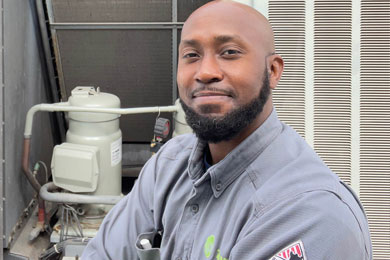
DJ Brown and the Value of Collaboration
A lead technician in the San Diego office, DJ Brown works closely with contractors and has one primary goal: Help the job run smoothly. -
Celebrating 50 years of the Engineers Newsletter
Since its inception, Trane® has strived to provide objective and useful information to engineers and contractors. Early examples include numerous bulletins covering new systems and equipment. In addition, the company began publishing the Trane Air Conditioning Manual in 1938. -
Getting to Low Carbon Buildings with Thermal Energy Storage
This year, there has been a lot of news around thermal energy storage as a way to reduce carbon emissions, and for good reason. Read more for two of the latest trends. -

-
6 Ways for Indoor Agriculture to Grow Sustainability
Precisely maintained indoor environments make indoor growing operations highly efficient. They consume up to 95% less water, use less fertilizer and pesticide and are hundreds of times more productive per square foot compared to traditional farming methods. And growers don’t need to worry about Mother Nature spoiling the harvest. -
Get Smart on Creating Productive Learning Environments
Join Portia Mount of Trane and Corgan experts David Euscher, Sangeetha Karthik, and AJ Sustaita as they discuss creating effective and inclusive K-12 learning environments. -

Haley Whiting - Finding a Second Career in the Trades
Haley Whiting is an apprentice pipefitter in Chicago – Union Local 597. She’s been working in the trades for nearly five years and, in her early 30s, is one of the older apprentices. Her career started off in one direction before the construction industry finally found her. -
Open systems in building management systems
A communication protocol is a set of rules used to share data. An open protocol means the communication rules are publicly available. Using an open protocol is a good first step but can become complicated if a single vendor owns the protocol. That vendor could keep some of the features for only their products, making it less open than would first appear. Or worse, the vendor may change the protocol leaving existing systems in a state where an upgrade may break existing interoperability. -
3 ways colleges are using stimulus and savings to create healthier, more prosperous communities
In response to COVID’s impact on our schools nationwide, the U.S. Department of Education has stepped in to provide an unprecedented amount of funding as part of its American Rescue Plan (ARP). Through this funding, community colleges around the nation received over $40 billion in Higher Education Emergency Relief Funding (HEERF III) to address the financial burden faced by institutions of higher learning and students alike. -
Get Smart on Efficient and Healthy Schools: From Research to Practice
Join Anisa Heming, Director of the Center for Green Schools at the U.S. Green Building Council, and Wanyu Rengie Chan, Ph.D, Healthy Schools Research Scientist at the Lawrence Berkeley National Laboratory, as they unpack the latest studies and best practices in IEQ for K-12 school buildings. -
Insight from an expert: IEQ and back to school
As part of a holistic approach to building wellness, an energy service company such as Trane can help school leaders access unprecedented funding currently available to optimize indoor spaces in schools. Additionally, Trane can help leaders prepare a long-term replacement strategy should they be hit with a natural disaster or other surprises. -
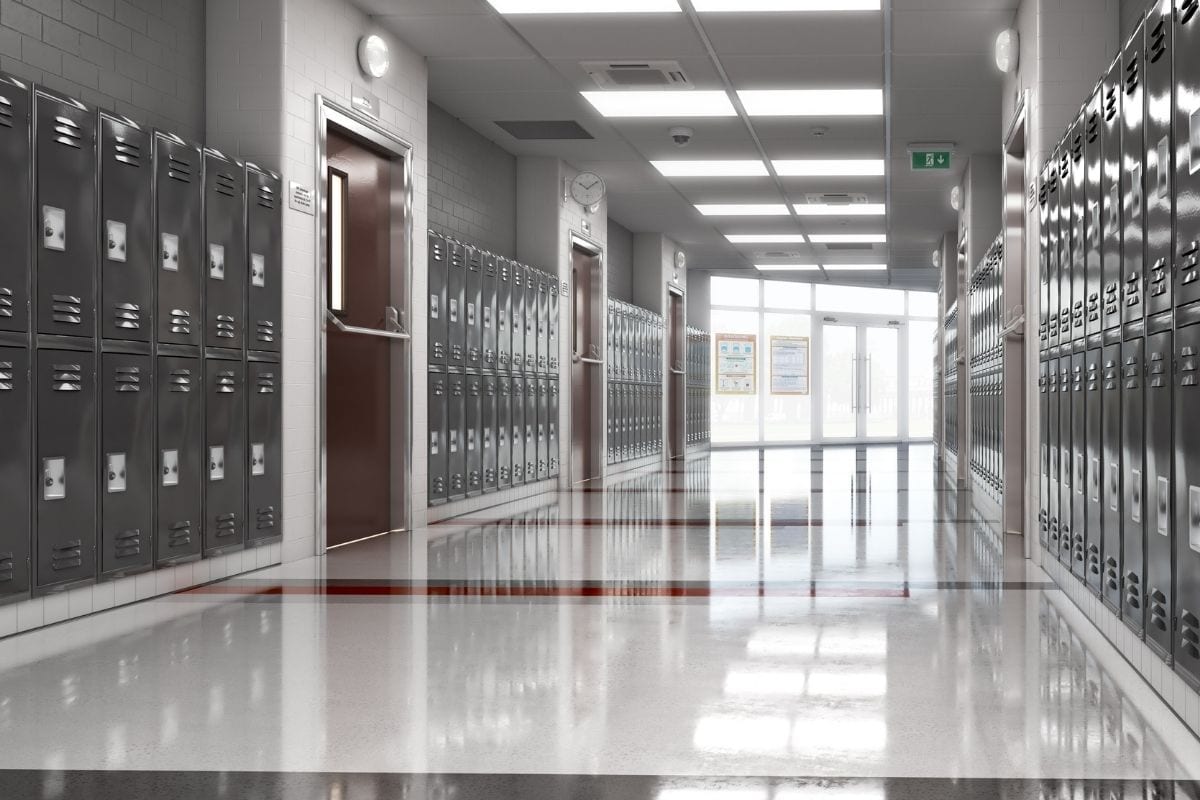
Insights from an expert: IEQ and back to school
Although a heating, ventilation and air conditioning system in Texas is one of the most important components of a building, it often is underfunded for preventive maintenance and replacement. I think that fewer than 20 percent of the state’s schools have a capital improvement plan in place. Now is a great time for the remaining 80 percent to address that need. -
Insights from an expert: IEQ and back to school
Although a heating, ventilation and air conditioning system in Texas is one of the most important components of a building, it often is underfunded for preventive maintenance and replacement. I think that fewer than 20 percent of the state’s schools have a capital improvement plan in place. Now is a great time for the remaining 80 percent to address that need. -
Get Smart on Technical Career Pathways for Students: Industry and Education Partnerships
How has technical education changed and why should parents, students, businesses and communities consider a technical career pathway an important opportunity? -
River Trails School District 26 awarded for outstanding energy efficiency commitments
Prairie Trails School is on track to save more than $32,000 a year in annual gas and electricity costs while offering optimized indoor air quality and reliable, energy efficient performance. -
Open distribution in building automation systems
When it comes to building automation systems, not all uses of the term “open system” are equal. When talking about open systems, definitions typically fall into three categories: open distribution, open protocols, and open service. This blog explores open distribution. -
6 Ways to Make HVAC Systems as Green as Can Be
Technology and material advancements have been making buildings consistently more sustainable for decades. Some of what’s possible is truly remarkable. There are solutions readily available today that can reduce emissions while paying back building owners with financial benefits. -
Get Smart on the State of the Schools: America's K–12 Facilities
Why has the U.S. PK-12 school facilities’ funding gap increased to a staggering $85 billion a year — when the learning environment is more critical than ever — and what can be done about it? Join Mary Filardo, Executive Director of the 21st Century School Fund and Rachel Hodgdon, CEO of the International Well Building Institute®, as they delve into their organizations’ 2021 State of Our Schools Report. -
It's Elementary: IAQ Management and Monitoring Matter in Schools
Even well before the global pandemic, researchers reported that maintaining proper indoor air quality (IAQ) can help reduce absenteeism, affect test scores, and enhance student and staff perceptions of productivity. According to a literature review published in 2005 in Indoor Air Journal , evidence suggests that poor indoor environmental quality (IEQ) in schools is common and adversely influences the performance and attendance of students, primarily through health effects from indoor pollutants. -
Insights from an expert: IEQ and back to school
Cameron Griffith offers 15 years of energy services consulting experience helping customers leverage their buildings to meet improve their business performance. Cameron helps building owners meet or exceed business outcomes, using buildings as a resource to maximize asset potential. -
Insights from an expert: Designing for healthier spaces
Typically when people think of “healthier indoor spaces” they are referring to the filtration or other air cleaning technologies. What many people don’t realize is that the health of their spaces is so much more that that. It starts with thermal comfort, ie the temperature and humidity in the space. ASHRAE has tons of research that shows that there are optimal ranges for temperature and humidity to keep occupants comfortable and prevent the spread of viruses, bacteria and other microbials. -
Get Smart: How to use energy contracting to your school's advantage
How can schools leverage tomorrow’s energy savings to fund today’s K-12 school building improvements — and what risks are associated with these types of projects? Join Dr. Timothy Unruh, Executive Director for the National Association of Energy Service Companies (NAESCO®), as he dives into the ins and outs of this funding vehicle known as an energy savings performance contract. -
There’s more to indoor comfort than temperature
Multiple studies have shown that the more comfortable people are, the more productive they become. Some applications, like healthcare, retail stores, grocery stores, and schools may have unique requirements related to one or more of the thermal comfort parameters for the comfort of the people – or food – inside their buildings. -
Insights from an engineer: Designing for healthier spaces
There is not a silver bullet when addressing IEQ or IAQ issues. Every building is different, and every customer is different. It is important to assess each building to determine existing conditions of the space. It is also important to understand key factors from the customer (efficacy against pathogens, energy efficiency, mold/mildew mitigation, improved productivity, comfort issues, etc.). Most projects require a layered approach to meet the unique needs of the customer and their building’s current state. -
Annual School Facility Funding Gap Grows to $85 Billion
A new report from the International Well Building Institute (IWBI), State of Our Schools 2021, shows a projected annual shortfall of $85 billion in annual U.S. K-12 public school facility funding, despite significant local and state efforts to deliver healthy and safe public-school buildings. This shortfall represents a nearly 80 percent increase since 2016 according to the report by the 21st Century School Fund, IWBI and the National Council on School Facilities. -
3 Ways Facilities Managers Can Partner with Superintendents on Infrastructure Improvements
The current education stimulus funding represents the United States’ largest-ever investment in infrastructure upgrade opportunities for K-12 schools. (Source) These unprecedented stimulus funds can be leveraged for facility upgrades including indoor air quality improvements. As the district’s trusted facility advisor, one of the most important things you can do is help your school make the right decisions when it comes to funding district needs. -
IEQ: What's now, what's new and what's next
Hear from Scott Huffmaster, North America Sales Leader for Healthy Spaces with Trane, as he talks about what’s now, what’s new and what’s next for IEQ. -
VRF: The right solution for CORE Fitness
When CORE Fitness in Providence, Rhode Island, began transforming an old brownstone into an upscale fitness center they turned to Coldmasters and Trane. Specializing in cycling, weight training and boxing classes, CORE knows the importance of bringing individualized comfort to its clients. -
Insights from an expert: IEQ and back to school
Insight from an expert: IEQ and back to school -
How are schools using federal funding? Hear from 3 superintendents.
We talked with 3 superintendents from around the country to learn how their school districts are leveraging federal funding to improve building infrastructure for the upcoming school year and beyond. -
Are Stimulus Funds a Generational Opportunity?
We talked with 3 superintendents from around the country about how federal stimulus funds offer an opportunity to upgrade facilities in ways that will leave a lasting positive impact for generations to come. -
What's the impact of school infrastructure updates? Hear from 3 superintendents.
We talked with 3 superintendents from around the country about the many long-term benefits of thoughtful infrastructure improvements, specifically for students today and of future generations. -

-
Insights from an expert: IEQ and back to school
Many schools realized that their systems, particularly mechanical and HVAC systems, were not capable of handling the CDC- and ASHRAE-recommended modifications during the pandemic, such as increasing outdoor air. Especially in the Northeast, systems are not built to handle 100 percent outdoor air in the dead of winter. Therefore, it made schools consider more holistic and creative ways of preparing their classrooms for teachers and students, such as air cleaners or better controls strategies. -
Drive customers in and odors out – is your restaurant properly pressurized?
Our sense of smell has been a powerful motivator throughout human history. This natural olfactory instinct can drive the decisions we make - whether they’re good, bad or indifferent. So, when it comes to restaurants and kitchens, help ensure customers only get the very best of the smells in your building. -
5 great reasons to assess indoor environmental quality – and 1 bad reason.
If the pandemic taught us anything, it’s the importance indoor environmental quality (IEQ) has on the comfort and well-being of people inside. It’s been an issue for a lot longer, though. So long, it even has a name: Sick Building Syndrome. Sick Building Syndrome is a condition affecting office workers attributed to poorly managed facilities or stressful factors in the working environment such as poor ventilation. -
5 ways to boost peace of mind about in-person learning
School systems across the country displayed superhuman creativity and resolve to make distance learning possible during the pandemic. Despite the herculean effort, 97% of educators believe students have suffered at least some learning disruption, with more than half believing that loss was significant1. In-person learning remains the most productive K12 educational environment. -
Navigating fundamental changes in the energy landscape
Chances are you’ve heard about decarbonization and electrification: two six-syllable words that may sound like a weird new diet. They are in a way – but for fossil fuel consumption, not calories. And engineers and building owners should be paying attention. -
Keep the balance: Monitoring your building’s IEQ
The 2020 pandemic magnified that buildings — along with the operations they house — are vulnerable to unseen health threats. Now more than ever, addressing people’s confidence and comfort inside a building can be core to business success and a vital part of a building’s value proposition, and its marketability. Taking the right long-term approach to your building’s indoor environmental quality (IEQ) can help you ensure your building’s wellness, and more importantly, the well-being of its occupants. -
Five Tips to Navigating the Complexity of Open System Building Controls
When it comes to building automation systems, not all uses of the term “open system” are equal. The following tips can help you identify the most critical open system capabilities so you can make an informed decision for your building or project’s needs.When it comes to building automation systems, not all uses of the term “open system” are equal. The following tips can help you identify the most critical open system capabilities so you can make an informed decision for your building or project’s needs. -
Creating a Cleaner Environment for Dining Experiences
Restaurant owners and facility managers are among many who know how to deliver on cleaner environments. Their businesses are built on it and can easily be shut down because of it. Creating a worry-free dining experience and communicating that dedication to customers is fast becoming a marketing tactic to help obtain and keep customers. -
Creating Comfort Through Humidity Control
Life is slowly returning to normal, as more and more people are coming together in their favorite eating places. For restaurant owners and facility managers this uptick in indoor dining is a good sign after taking a $240 billion hit from pandemic shutdowns1. For many, recovery will take years. But that recovery is happening, which is why many building owners and facility managers are working to ensure they are creating inviting, comfortable dining spaces where customers can breathe easy. -
Bring the Outdoors in with Optimized Ventilation
“It’s more than good food that will bring customers back inside,” Greg DuChane, Trane Restaurant Vertical market leader and engineer said. “Restaurants will need to ensure both their employees and customers feel confident indoors. People are ready to dine again and ensuring worry-free dining will be a key marketing strategy in many areas.” -
As we begin to transition into a post-pandemic world, indoor air quality (IAQ) continues to be a central focus for us, our customers and the world. While people collectively consider how and when to safely return to buildings, addressing airborne health risks in indoor spaces is a top priority.
-
K-12 Rental Programs: Short-Term Agility in an Emergency
A broken HVAC chiller. Mold issues. 500 students needing to return to school. The pressures around managing aging schools are never-ending and are further complicated when buildings close due to faulty or broken systems. For an Alabama elementary school, this was a reality. A two-month replacement lead time only made it worse. -
Powering Up Indoor Air Quality in New York State Schools
The COVID-19 pandemic marked the beginning of changes for in-person learning and activities the likes of which have never been seen before in the State of New York. As thousands of K-12 schools closed and students, families and staff prepared for self-quarantine and limited social interactions, superintendents were confronted with complex and, in some cases, conflicting challenges. -
Three-Step Approach Helps School District Open Classrooms Quickly
Re-opening schools required improving indoor air quality (IAQ) to mitigate health risks for a safer in-person learning environment. Located in an industrial center that generates airborne particulates and odors that preclude opening windows, the district also faced budgetary constraints. Additionally, the district’s outdated (HVAC) heating, ventilation and air conditioning system couldn’t support use of ASHRAE®-recommended MERV 13 filters. -
Are You Prioritizing IAQ Efficiently?
The importance of indoor air quality (IAQ) has truly changed. IAQ is now seen as a critical factor in determining the overall health of your building and addressing the well-being of those who occupy it. Even prior to 2020, EPA studies of human exposure to air pollutants indicated that indoor levels of pollutants may be two to five times higher than outdoor levels. -
In response, many building owners, managers and tenants are seeking validation through independent healthy building certifications and recognition. One of the leading organizations in the field is the International Well Building Institute® (IWBI). As a proud member of the IWBI, Trane® is actively engaged with the organization. We are sharing research and latest innovations, working together to solve today’s IEQ challenges.
-
Trane Offers New Cold Storage Option to Boost Vaccine Effort
As vaccine manufacturers continue to roll out COVID-19 vaccines, thousands of health care networks, hospitals, and large and small pharmacy groups around the world are working to properly receive and house the critical cargo, which has unique and specific cold storage requirements. -
No Silver Bullets for Indoor Air Quality
In the past year we have faced many challenges, not the least of which has been a global health crisis which continues to take its toll on our communities. The pandemic has raised awareness of the general indoor air quality (IAQ) topic, including not only aspects related to pathogens like the SARS-CoV-2 virus, but also aspects related to other contaminants (dust, allergens, volatile organic compounds, etc.). People were already spending almost 95% of their time in enclosed spaces , and this percentage became even higher with the pandemic, so IAQ and the technologies that can preserve or improve it have taken center stage. -
Expand Your Expertise on Healthy and Efficient Spaces
As 2021 unfolds, it may be safe to say that indoor environments have never received quite as much attention as they have now, particularly the environmental quality of enclosed spaces. People who may not have previously recognized the value of your role in the building industry might now be showing greater appreciation, or even pelting you with questions. -
Three Ways Schools Can Fund Indoor Air Quality Investments Today
We know you want to get students back into classrooms as safely and as quickly as possible — and keep them there safely — and we want to help you through this monumental effort. -
How Funding Solutions Can Help Schools Improve Air Quality of Classrooms
Schools, including K-12 institutions, can now take advantage of more than $80 billion in funding within the Education Stabilization Fund to improve their learning environment — including optimizing their indoor air quality (IAQ). -
Shutdown Ready - Identify Your Best Building Connectivity-Level
Imagine being able to hit one “shutdown” button, to manage the process of preparing those dozens, hundreds or even thousands of facilities for a shutdown. A manager responsible for approximately 200 retail facilities, most of them including commercial kitchens, for example, recently became the envy of his fellow facility managers when he shared during a pandemic update that he was able to do just that: complete what was essentially a “one-button shutdown.” -
Introducing: Wellsphere, Trane's Holistic Approach to Building Wellness
To support building owners and others navigating this new IEQ era, Trane recently launched the Wellsphere platform. Designed to offer high-level thinking around IEQ, Wellsphere is our holistic approach to building wellness. -
Commercial Indoor Air Quality: Best Practices and Trends
With COVID-19-related cases continuing across the nation, many businesses remain focused on safely operating and maintaining their buildings. In some cases, small changes are making big improvements and in others, long-term building health is getting much-needed attention. -

Why better overall restaurant comfort starts in the kitchen
First and foremost, employees and guests can experience better air quality and comfort throughout the restaurant. Trane’s Total Restaurant HVAC System introduces up to 10-times more fresh air than the HVAC in conventional buildings (125 – 130 percent more than most codes require). It replaces air 25 – 30 percent faster than a traditional design. It also offers a solid financial justification by delivering an average $4,000 to $12,000 in annual energy savings*. -
Emergency Contingency Planning: Key Best Practices
It’s critical for organizations to have an effective, proactive power and HVAC contingency plan in place. Not only can it reduce financial risk, the contingency plan can help protect the health and safety of building occupants and increase peace of mind for the organization and its stakeholders. -
Lowering emissions in the Northeast: Key Strategy for a New, Sustainable Grid
The trend to decarbonize is transforming the U.S. power grid. The grid increasingly depends less upon fossil fuels and more upon distributed energy resources or technologies such as solar photovoltaic and offshore wind alongside new energy efficiency, demand response, energy storage and other customer-based technologies. -
Cold Ahead: Prepare Your Facility Now
With 2020 driving unprecedented demands – at work and home – you may not yet have prepared your building for colder days. There’s still time! Here are a few tips and recommendations from Trane® building professionals that can help you save energy and lower your utility bills during the colder months ahead. -
Avoid the Filter Frenzy: Take a Methodical Approach to IAQ
More popular than “toilet paper in April.” That’s how a recent CNBC story described the current shortage in high quality air filtration systems, many of which are currently back ordered. Due to COVID-19 and the subsequent ASHRAE® guidance to upgrade filtration to MERV 13 or greater, demand for MERV 13 pleated filters has hit unprecedented levels. Complicating this demand, both MERV 13 pleated filters and high-demand N95 masks depend on the same media: high electrostatic non-woven polypropylene fiber. -
Now is the Time to Optimize Your Building's Grid Resiliency
Learn how you can get ahead of future strains on the power grid – whether due to temperature spikes, intermittent or variable renewable resources, or raging wild fires Discover why and how to optimize your building’s grid resiliency from systems, services and controls to energy sources. -
20,000 Buildings and Nearly 1 Million Pieces of Equipment
With HVAC demand expected to triple by 2050, connected buildings that incorporate digital controls will play a crucial role in ensuring ongoing efficient energy management and sustainable building operations -
Move IAQ projects forward faster with new Trane financing
Qualified districts may be able to complete IAQ projects immediately by bundling the cost of an IAQ Assessment, pertinent solutions and even ongoing service into one convenient financing solution, provided by Trane. -
IAQ can't wait. Federal funding can help schools move forward.
Available grant money may provide the funding schools need to improve air flow, filtration and air cleaning technology that can help mitigate the spread of airborne pathogens, -
Trane Trends: Work-From-Home Solutions for Personal Productivity and Team Collaboration
Working outside the confines of a professional, well-designed office space can be chaotic for an engineer (or anyone) who thrives on process and organization. While working remotely from home, Ken Durham, Trane’s Regional Operational Excellence Leader for the Pacific Southwest, took steps to restore his sense of order, and his advice can help anyone do the same. -
Optimize Your Restaurant Environment with Confidence
While masking, surface cleaning and social distancing can help mitigate potential virus spread, considering other measures can help restauranteurs reduce potential spread of certain airborne virus in a restaurant environment. -
Connectivity Drives Results for Crosstown Concourse
Connectivity can drive significant results for building owners and managers. After all, connected buildings open the door to better service and technology for building owners and managers. Insightful data allows for solutions that improve a building’s performance — including decreasing greenhouse gas emissions, increasing energy savings, and helping building owners make the right decisions for both their facilities and the planet. -
Trane Trends: Adapting to new building priorities
As we talk to customers today, it’s easy to recognize they’re being asked to think differently. Our products and services must also morph to meet these new challenges and opportunities. What used to be a seemingly endless drive towards energy efficiency is now a balance between indoor air quality and energy efficiency – and connectivity will play a huge role in achieving this goal. How will we offset the costs of conditioning this extra outside air? -
Empower Your Tenants to Match System Operation with their Ever-Changing Schedules
Tenants are innovating to facilitate social distancing, and that is causing headaches for facility managers. Trane streamlines tenant occupancy management, allowing occupants to change system scheduling by interacting directly with the building automation system (BAS). This process also optimizes energy use. -
Restaurants and Retail: Common Challenges for Optimizing Commercial Kitchen Environments
With the ever-changing landscape of COVID-19, restaurant and retail building facility managers have an even greater opportunity to create and maintain healthier building management practices. However, maintaining, and in some cases creating, those practices are pushing facility managers to face new challenges – especially in commercial kitchens. -
Trane Trends: Growing through new challenges
We have all had to change the way we interact with customers and coworkers and find ways to stay positive during these challenging times. Kasey Connor, Trane’s Sales Engineer, New England, sees opportunity in the adversity and believes it may make us all better people in the long run. -
Optimizing HVAC Maintenance When Runtime is Never the Same
By integrating work orders with the building automation system (BAS), Trane’s work order management software makes it easy to order parts and perform maintenance based on actual equipment run time. -
Five Ways to Build Your Brand in the "New Normal"
Building a strong and differentiated brand matters now, more than ever, as building owners and managers navigate the challenges of the global health crisis. Clients are looking for a solid “say” + “do” ratio and commitments from their partners to listen, and to be transparent and authentic. -
Preparing Your District: The ABCs of Optimizing Indoor Air Quality
As a school administrator, you are already well aware there are no easy answers regarding the best way to re-open schools. While there is heavy focus on the importance of masking and surface cleaning, even more important is addressing your schools’ indoor air quality (IAQ) to meet appropriate and ever-evolving guidelines. -
Consider Creative Financing to Take a Holistic Approach in the “New Normal”
Building owners and managers are facing new pressures as we all navigate the “new normal.” While budget pressure may be higher than ever, there is also a pressing need to optimize the indoor environment – and progressing so can meet multiple business objectives. -
-
Trane // Your Partner in Resilience
There’s an old saying that adversity is a great teacher. If that’s the case, the current situation is certainly doing a lot of teaching, and we’re all doing our fair share of learning. It's testing our mettle as individuals and as organizations. It’s challenging us and pushing our limits in ways we couldn’t have possibly imagined 6 months ago. But in many ways, it’s also taking us to new heights. -
The Link Between LED Lighting and Observed Health, Learning and Productivity
Use of LED lighting is transforming the role that lighting can play in an environment. Some LED lighting technology allows for variation in lighting intensity and color temperature that can help people augment their environment. -
Where are the trustworthy COVID-19 resources for the HVAC/building industry?
The impact of such a pandemic is real and harsh. With most of us juggling different roles in our life, the question on how we stay safe and productive in tough times surface to the top. As a good citizen, we should follow the guidance from Centers for Disease Control and Prevention (CDC) for personal actions. For many of us serving in the commercial HVAC field, many industry resources have become available recently. -
Your Checklist to Optimize Remote Building Management
Remote building management is now essential. Utilize all features of your system to monitor, adjust schedules, and integrate additional systems. -
Top Tips For Remote Building Management
As the needs of facilities are rapidly changing during these unprecedented times, Trane wants its customers to know we're here to help. -
Next Generation Lighting Illuminates New Options, Simplifies HVAC Integration
LED lighting has rapidly grown in commercial use, expected to reach 84% market share by 2035. Trane offers expertise in integrating LED and HVAC systems for optimal energy savings. -
AHR Expo 2020: Sustainability is the New Reality
Sustainability is becoming more deeply embedded into every aspect of business and buildings. Looking back at AHR Expo® 2020 last week in Orlando, we’re feeling proud of the way our industry has stepped up to the challenge. -

Energy Storage: Transforming How We Use-- And Pay For-- Energy
Energy storage may be the technology that fundamentally changes the grid. It’s important to know that buildings have two types of energy loads, electric and thermal, and each one has an optimal storage method. -
The Benefits of Wireless Controls for Connected Buildings
Connected buildings can save energy and money, keep people comfortable and increase uptime. Discover ways to tap into these results by using the hidden potential in your existing building — data. -
Zero energy building growth has increased by 700 percent since 2012 and revenue from these buildings is expected to reach $1.4 trillion by 2035. Buildings with the greatest flexibility can offer multiple benefits to the grid and to the owners and managers of those buildings.
-
Designing an HVAC Systen When Your Building Occupants are Green
Green plants, such as lettuce, kale, basil, and other crops, are being grown by indoor agriculture producers around the world. Maintaining an optimal environment is just as important when plants are grown indoors as when they are outside. -
Energy Cost Saving Methods for Data Centers
When data centers want to reduce non-IT energy costs, there is no single solution. Many strategies come to mind, and the best one…depends. It depends on utility rate structures, local climate and natural resources, and on the type of IT equipment and how the center is laid out. Experienced HVAC system designers begin with energy efficient base equipment—and then we get creative. Many of the available solutions for reducing energy costs aren’t new, but we’re finding new ways to apply them to reduce the energy intensity of data centers. -
Data centers and computer rooms are being built everywhere to accommodate the rapidly increasing demand for data processing. Too often, systems that are designed to manage human comfort are being applied to data centers, and they simply aren’t up to the task. Using a comfort system where precision cooling is required inevitably results in unplanned downtime, excessively high energy costs, and diminished ROI due to shortened equipment life.
-
How to Build a Contingency Plan in 8 Steps
No matter what industry you are in, it is critical to develop a power and HVAC contingency plan as part of a comprehensive crisis-response plan. Interruptions to power and HVAC – whether from a natural disaster or other challenges – can cause millions of dollars in damage, disrupt operations and erode stakeholder confidence. Developing an effective power and HVAC contingency plan minimizes financial risk, while protecting the health and safety of building occupants and providing peace of mind for an organization and its stakeholders. -
The Future of Data Center Energy Use
It’s one of the biggest paradoxes of our time: The world needs to build more energy-intensive data centers to meet growing demand. Meanwhile, it has become imperative to reduce carbon emissions to put the brakes on climate change. It’s both a challenge and an opportunity to introduce technologies that could transform building energy use forever—across all sectors—including machine learning and artificial intelligence. -
Data centers and computer rooms are being built everywhere to accommodate the rapidly increasing demand for data processing. Too often, systems that are designed to manage human comfort are being applied to data centers, and they simply aren’t up to the task. Using a comfort system where precision cooling is required inevitably results in unplanned downtime, excessively high energy costs, and diminished ROI due to shortened equipment life.
-
Achieving the Water-Energy Conservation “Sweet Spot"
While the focus on climate change has driven reduced energy consumption, attention to water conservation is increasing because fresh water supplies are diminishing. At the current consumption rate, this situation will only get worse. -
Business values are driving even greater progress
-
What’s Happening with the Skilled Labor Shortage?: And how it is impacting the HVAC industry
As the dynamic HVAC industry continues to grow and change, it finds itself faced with a growing skilled labor shortage. -
Women in HVAC: How we are Closing the Gender and Job Candidate Gaps
The calendar just closed on the 2019 celebration of International Women’s Day. With a new flood of college graduates poised to hit the job market, our leaders remain focused on encouraging increased representation of women in heating, ventilation and air conditioning (HVAC) jobs. -
Here's what you missed at the 2019 AHR Expo
Didn't make it to the 2019 AHR Expo or just want to re-live the excitement? Check out our booth tour video and read about booth highlights from this year's show. -
An Update on PG&E's Bankruptcy
Based in San Francisco, PG&E is the largest utility in the nation. It provides electric and natural gas services to 16 million customers across a 70,000 square mile area of northern and central California. -
4 Questions to Determine Your Equipment Upgrade Strategy
You may be at a crossroads between replacing or retrofitting your building’s HVAC equipment due to age. We know this because the U.S. Energy Information Administration has reported that nearly half of all commercial buildings were constructed before 1980.1 -
U.S. Natural Gas Prices Spike to Levels Not Seen Since 2014
Closing Wednesday at $4.84 per MMBtu, prompt-month natural gas prices have soared to their highest levels since 2014. Despite the multi-year high levels, this move wasn’t totally unexpected and Trane has been warning clients about the possibility of a winter price run-up since signs started pointing that direction in the summer months. -
Thinking differently about VPPAs
What’s in your sustainability playbook? Purchasing renewable energy from a local provider, reducing overall energy consumption and installing distributed renewable energy sources, such as solar panels or wind turbines, should all be considered as part of a holistic approach to energy and environmental impact. -
The High Cost of Processing Your Own Energy Invoices
An independent study recently calculated the cost of processing a single energy invoice at $13.04. A line item under $20 probably won’t catch the attention of the finance director, but a deeper look into missed benefits and opportunities elevates the priority. -
Low Storage Levels Could Spike U.S. Winter Natural Gas Prices
With the winter just a few weeks away, it has become increasingly clear that the U.S. will go into this heating season with the lowest amount of gas in storage since 2003. Storage is now expected to be at just 3.25 trillion cubic feet (Tcf), well below the 3.8 Tcf that was seen last year and the record 4.05 Tcf that we had to start the winter of 2016-2017. Some colder temperatures to end October are expected to put injections below normal over the next few weeks. -
Corporate Sustainability need not be Controversial
As corporate sustainability efforts are at an all-time high, there is increasing interest in how these efforts are reported and how they impact overall business. While many companies wish to be seen as leaders in sustainability, some question if these efforts are compatible with their core business functions. This dilemma is best exemplified in two incidents from the past several weeks. -
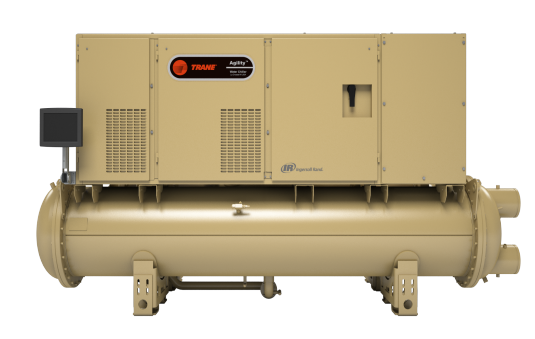
Five Questions with Mike Patterson, Agility Product Manager
Commercial buildings are facing a challenge rooted more than 20 years ago. Before 1980, large heating, ventilation and air conditioning (HVAC) units were often placed in hard-to-reach areas — basement-level mechanical and utility rooms — to hide their bulky large appearance. -
Canadian Liquefied Natural Gas (LNG) Facility Moving Forward
After years of waiting in uncertainty, LNG Canada, a major liquefied natural gas (LNG) liquefaction and export project in British Columbia, is finally moving forward. -
4 Ways to Optimize Your Building's Performance on a Budget
Delaying building improvements because of budget can ultimately cost more in reduced performance and inefficiency. So don’t wait. Here are four opportunities for building optimization on a budget. -
Power Bill 101: What’s Driving Your Price? Revealing the Secrets of Your Energy Bill
Electricity bills can be painful. Ask businesses about their operating expenses, and most will say that energy is in their top three. If the utilities in your state are regulated, look to optimize your utility rate schedule. -
U.S. Natural Gas Exports to Mexico at Record Highs
With two new pipelines entering service in June (Nueva Era and El Encinco-Topolobampo), U.S. piped gas to Mexico has been soaring to all-time highs. -
Predictive Building Analytics: The Future of HVAC Automation
Would you feel more confident in your building’s performance if technology could predict equipment failures before they happen? In the Internet of Things (IoT) age, this level of insight is possible and is known as predictive analytics. -
The Formula for Energy Supply Management
When customers ask for our help in analyzing their energy bill, we start by building a fundamental understanding of the influencing factors. -
Using R22 Refrigerant and Its Alternatives in HVACR Systems
Learn about the phase out of R22 refrigerant and explore several alternatives with this guide from Trane. How will you handle the pending changes? -
Where is Wind Energy in the U.S. Headed?
With natural gas first and solar third, wind has been the second most prolific source of new U.S. power generation capacity over the past 15 years or so. -
Nevada Looks toward Electricity Deregulation Vote
Nationally, the trend of power deregulation seems to have largely stabilized. While there are some occasional efforts in states like Ohio or Michigan to re-regulate, these rarely make it past the introduction of a bill or speculation on the part of a utility spokesperson. Similarly, few states seem to be interested in deregulating (or in the case of California and Michigan, further deregulating) their power sector. -
In the warm summer months, electrical demand goes up, driving prices higher. Meanwhile, HVAC equipment kicks into high gear to keep occupants cool. It’s the annual conundrum as building operators struggle to maintain the balance between cost and comfort. It’s time to take on a few summer energy projects.
-
How to Get Started with Connected Buildings
The ability to connect building systems and equipment through the internet has been around for years thanks to advancing technology and better equipment design. This capability has led to a trend in connected or smart buildings where connected devices (e.g., lighting, security systems and HVAC equipment) produce data that can be captured and applied to significantly increase efficiency and save money. -
Is sub-$3.00 natural gas the new normal? Can the NYMEX prompt-month contract actually make a rally? In short, do the bulls have a chance anymore?
-
How Does Thermal Energy Storage Add Value to Your Zero Energy Building Strategy?
Fueled by new regulations such as those being imposed in California and Vancouver, Canada, requiring net zero new construction; challenges by organizations such as the American Institute of Architects (AIA) for all new buildings to be carbon neutral by 2030; new building codes encouraging less energy use; real estate firms wanting to differentiate their holdings in the competitive marketplace; and building owners just wanting to do the right thing for the environment, the Zero Energy Building (ZEB) concept is receiving increased emphasis in the commercial real estate industry. -
What Going Beyond Means to Steve Tudor, Account Manager in Nashville, TN
Let’s Go Beyond™ -- The tagline permeates Trane literature, advertisements, vehicles, videos, websites and tradeshow materials. Used to convey our company’s personality and character, the tagline elevates us beyond the simple and known, onto bigger thinking and bigger problem solving, showing that Trane is leading the way beyond just products to systems, services and total solutions. -
How Do Rising Oil Prices Impact The U.S. Natural Gas Market?
From the OPEC-led production cuts to global geopolitical turmoil to surging demand in China, a variety of factors have been pushing oil prices to four-year highs. U.S. WTI has recently been up 20% this year to over $71 per barrel, and the possibility of $100 oil has entered the market. -
Thermal and Battery Energy Storage Working Together for High Performance Results
The energy market is going through a mass transformation. Fossil fuels are being used less and less and renewable energy is on the rise. As a result, an important element is disappearing – energy storage. -
4 Reasons VRF is the HVAC Solution for your Building
Variable Refrigerant Flow (VRF) is the ideal HVAC technology for facilities that need an energy-efficient solution. -
Connected Buildings: Why You Need to Go Beyond the Data
Over the last five years, the terms “smart” or “connected” buildings have been used regularly, but what does that look like in practice? And how does it equate to business results? -
Women in HVAC: What we’re doing and why it matters
With Women's History Month and International Women’s Day both in March, it was the perfect time for companies like ours to reflect on what we’re doing to inspire and encourage women in HVAC — and what more could be done. -
With every breath you take, you’re measuring the air quality around you. Maintaining good air quality is key to creating a comfortable environment in a facility, for patrons and residents. But how do you attain good air quality, especially when you’re dealing with multiple factors like climate, the building systems, and regulations?
-
What Five Actions Would Real Resiliency Address?
Reliability has long been associated with the power sector and is, in fact, one of the cornerstones of the modern electric grid. Defined broadly as a utility’s ability to supply as much power as is needed at any given time, it is encoded in standards at every level, from NERC to state regulatory commissions. Significantly, these standards are quantitatively backed, enabling outcomes to be analyzed in detail to identify problems and ensure that expensive solutions to edge case scenarios are not over applied. -
Introducing the new IntelliPak rooftop system with Symbio 800 connected controls
We talked to Charles Abbinanti, Product Manager for Trane® large commercial rooftop equipment, to ask him what’s in store for the latest product release, coming in May. What’s new? What’s improved? And how Is Intellipak maximizing outcomes for our customers? Read on. -
The $13 Billion A Year Mystery: Understanding PJM's Demand Charges
PJM Interconnection, the Regional Transmission Organization that serves over 65 million people in the Mid-Atlantic and Midwest, is one of the most poorly understood entities in the U.S.’s electric landscape. PJM is the grid operator in 13 states plus Washington, DC, controlling and optimizing the flow of power through 82,000 miles of transmission lines spanning Pennsylvania, New Jersey, the Washington Beltway, and much of the Midwest. -
Sound Study: Does HVAC Equipment Support Learning Environments?
In the average school day, children spend 75 percent of their time listening. They listen to their teacher, they listen to each other, they listen to presentations and videos and readings — they listen to learn. -
What's Up With Texas Power? (Other than the Cost)
Summer power is always more expensive in Texas. This is not surprising as ERCOT, the corporation that runs the power grid for most of the state, has eschewed a capacity market and instead allows price spikes to compensate occasional generation. -
Northeast Gas Pipeline Shortages Impact Pricing And Clean Energy Goals
Despite not producing any themselves, the six states in New England have surged their reliance on natural gas-fired electricity generation. ISO New England now receives approximately 50% of its power generation from natural gas, versus 10-15% a decade ago. -
Thermal Storage Systems - Remarkable Resilience from a Sustainable Footprint
We spend roughly 90% of our time inside structures, and these structures require cooling to offset heat generated by us, our computers, lighting, and the ambient temperatures outside. Most cooling systems demand electricity during peak-demand periods. These demands are usually > 50% of the entire energy demand of the building. -
How to implement latest retrofit chiller technology in aging infrastructure
As buildings age, so does the equipment that keeps the environment comfortable. There are options for older infrastructure to improve efficiency. -
Important Information You Need to Know About Next-Generation Refrigerants
Regardless of the ups and downs of regulations in the U.S., this transition is going forward and has already begun. Our next generation products are available today throughout our portfolio and are nonflammable so our customers have choices now. -
How Will Two New PJM Proposals Impact Your Power? | Trane Commercial HVAC
The PJM Interconnection has in recent months put forward two proposals that could have significant impacts on delivered power prices in the region. One would alter how LMPs (Locational Marginal Price, the technical name for the cost of energy) are calculated while the other would change how capacity charges, fixed fees paid to generators, are created. -
Six ways to keep breathing from being dangerous to your health
With people spending approximately 90% of their time indoors, the correlation between illness, respiratory problems and other issues with the indoor environment is quite strong. -
Solar Tariffs, Pipeline Approval Highlight Recent Regulatory Decisions | Trane Commercial HVAC
On Monday, January 22 President Trump approved new tariffs on imported solar panels and solar cells. The decision is in response to claims from SolarWorld and Suniva that increasing imports from foreign companies were negatively impacting domestic solar companies. -
Global Oil & Gas Discoveries Fell in 2017 - But the Future Shines Bright
Last year was a down one for adding new oil and gas discoveries to the global stockpile. Less than 7 billion barrels of oil equivalent were discovered, the lowest total since the 1940s. -
Net-Zero to Hero: A Heat Recovery Retrofit at the Science Museum of Minnesota
Finding the sweet spot of energy efficiency and comfort is challenging enough for a standard building, but it truly gets tricky when multiple areas are thrown in the mix. “We have all sorts of spaces — Omnitheater, gift shop, exhibit halls, restaurants and catering facilities, exhibit and graphic production shops, meeting rooms and classrooms, and a parking ramp — that all have different energy needs,” said Todd Gray, assistant superintendent of facilities, Science Museum of Minnesota. -
Federal Tax Cuts could Mean Power Savings for End Users
With the signing of the Tax Cuts and Jobs Act of 2017, many state Public Utility Commissions (PUC) are now looking at how the bill will affect the utilities that they regulate. -
 In its monthly Drilling Productivity Report, the U.S. Energy Information Administration has recently combined its production data on the “Marcellus” and “Utica” shale plays into...
In its monthly Drilling Productivity Report, the U.S. Energy Information Administration has recently combined its production data on the “Marcellus” and “Utica” shale plays into... -
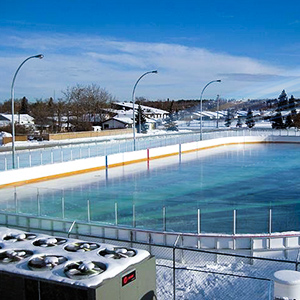 Learn about the different types of HVAC equipment that are essential when building and maintaining portable ice rinks.
Learn about the different types of HVAC equipment that are essential when building and maintaining portable ice rinks. -
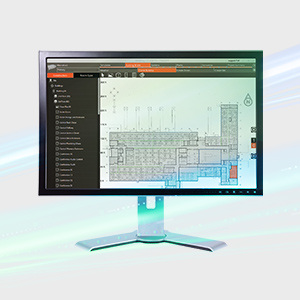
TRACE3D-Plus-Building-Design-Modeling
Robots… drones… wearable technologies… the smartphone we carry in our pocket. As consumers, we constantly look for the latest and greatest technologies, designed to... -
 On October 31 Connecticut Governor Dannel Malloy signed into law Senate Bill 1501. This bill would give the state’s only nuclear generator, the Millstone nuclear facility, the chance to...
On October 31 Connecticut Governor Dannel Malloy signed into law Senate Bill 1501. This bill would give the state’s only nuclear generator, the Millstone nuclear facility, the chance to... -
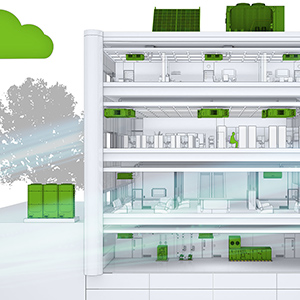
Maximize-Building-Equipment-IOT
Connected buildings, the Internet of Things (IoT) and smart devices are popular industry buzzwords. But do your clients have a true understanding of what a connected building.. -
 Now at their highest levels since mid-2015, oil prices have steadily increased in recent weeks. International benchmark Brent has breached the technical and psychological barrier of...
Now at their highest levels since mid-2015, oil prices have steadily increased in recent weeks. International benchmark Brent has breached the technical and psychological barrier of... -
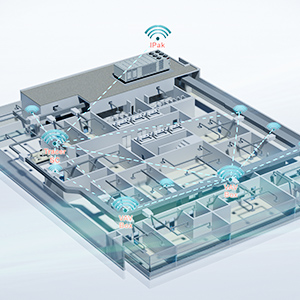
wireless-wired-building-automation-system
We are hearing a lot about replacing wired with wireless solutions today. While many agree with the wireless benefits, they also wonder which technology... -
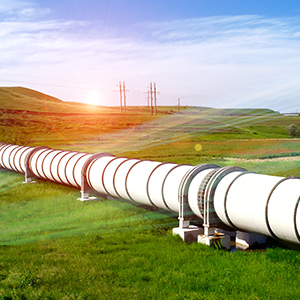
Natural-Gas-Production-Reaches-Record-Levels
Domestic dry natural gas production reached a record 75.8 Bcf/d on Thursday, October 26 as output continues to grow and infrastructure projects start to come online or near completion. The record production comes after relatively flat... -
 In most regions, the hot summer days are finally behind us. Even though the temperature is falling, your HVAC system will still work hard over the coming months. October is National Energy Awareness Month...
In most regions, the hot summer days are finally behind us. Even though the temperature is falling, your HVAC system will still work hard over the coming months. October is National Energy Awareness Month... -
 On October 10th the head of the U.S. Environmental Protection Agency (EPA), Scott Pruitt, announced that he was signing a proposal to repeal the Clean Power Plan (CPP), effectively ending the embattled program. This move was largely...
On October 10th the head of the U.S. Environmental Protection Agency (EPA), Scott Pruitt, announced that he was signing a proposal to repeal the Clean Power Plan (CPP), effectively ending the embattled program. This move was largely... -
 On September 25, the U.S. International Trade Commission (ITC) voted unanimously to side with Suniva Inc. and SolarWorld Americas Inc.’s claims that foreign-made crystalline silicon solar cells and panels were...
On September 25, the U.S. International Trade Commission (ITC) voted unanimously to side with Suniva Inc. and SolarWorld Americas Inc.’s claims that foreign-made crystalline silicon solar cells and panels were... -
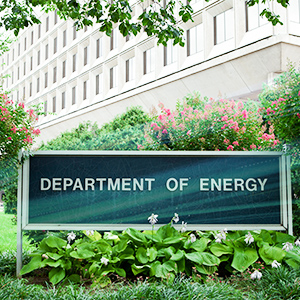 On September 28th, the Department of Energy (DOE) proposed that the Federal Energy Regulatory Commission (FERC) require independent system operators make whole certain “baseload” energy generators. This is only the second time in the history that...
On September 28th, the Department of Energy (DOE) proposed that the Federal Energy Regulatory Commission (FERC) require independent system operators make whole certain “baseload” energy generators. This is only the second time in the history that... -
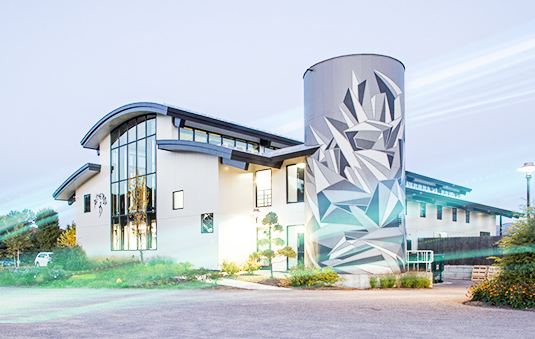 After eight years of success at their original location, co-owners John and Jen Kimmich decided to open a second Alchemist Brewery location to help meet their growing production needs...
After eight years of success at their original location, co-owners John and Jen Kimmich decided to open a second Alchemist Brewery location to help meet their growing production needs... -

Hurricane-Harvey-Irma-NG-Prices
The impact of Hurricanes Harvey and Irma on natural gas prices was mostly muted. In fact for futures contracts, on Friday August 25, right when Harvey's Texas landfall was imminent, prompt-month... -
 Ingersoll Rand, a world leader in creating comfortable, sustainable and efficient environments, joined international leaders from business, government and civil society at Climate Week NYC 2017 in New York City to discuss the momentum of global climate action.
Ingersoll Rand, a world leader in creating comfortable, sustainable and efficient environments, joined international leaders from business, government and civil society at Climate Week NYC 2017 in New York City to discuss the momentum of global climate action. -
 Nearly half of the nation’s school buildings have reported problems related to indoor air quality (IAQ). Why does IAQ in school buildings matter? Numerous studies link IAQ to student health and...
Nearly half of the nation’s school buildings have reported problems related to indoor air quality (IAQ). Why does IAQ in school buildings matter? Numerous studies link IAQ to student health and... -
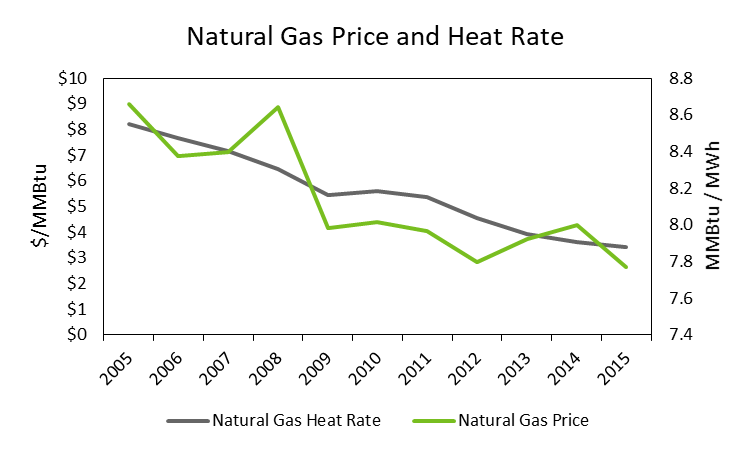
DOE-Wholesale-Electricity-Markets-Study
Last week, the U.S. Department of Energy (DoE) released its anticipated study on wholesale electricity markets and reliability. Commissioned by Energy Secretary Rick Perry, the report examines if... -
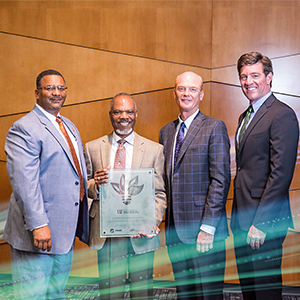 Both Trane® and Ingersoll Rand remain committed to reducing the environmental impacts of the company’s operations and product portfolio. In fact, we reported significant progress toward...
Both Trane® and Ingersoll Rand remain committed to reducing the environmental impacts of the company’s operations and product portfolio. In fact, we reported significant progress toward... -
Despite Bullish Factors, Gas Bears Hanging Tough
The natural gas bears simply won’t give in. Since settling at a 2017 high of $3.424 per MMBtu on May 12, the prompt-month NYMEX natural gas contract has fallen nearly $0.50 per MMBtu and is currently trading under the $3.00-per-MMBtu level. Forecasts for summer heat, stagnant production growth, and growing levels of exports have yet to wrestle momentum to the side of the bulls as traders concentrate on a milder May and early June and strong storage injections. -
 In recent months, there has been more talk around the creation of a new Independent Service Operator (ISO) in the western U.S., sparked by Nevada’s November 2016 preliminary vote to...
In recent months, there has been more talk around the creation of a new Independent Service Operator (ISO) in the western U.S., sparked by Nevada’s November 2016 preliminary vote to... -

Electric Passenger Vehicles in the U.S.
Although EVs are gaining in popularity, they remain a niche market. A stronger future seems assured. -
 In November 2016, the Organization of the Petroleum Exporting Countries, or OPEC, announced that it would start to curtail its crude oil production in January 2017 for the first time in nine years.
In November 2016, the Organization of the Petroleum Exporting Countries, or OPEC, announced that it would start to curtail its crude oil production in January 2017 for the first time in nine years. -
 Failing building systems, unsafe conditions and exorbitant energy repairs were a wake-up call for the city of Birmingham, Alabama...
Failing building systems, unsafe conditions and exorbitant energy repairs were a wake-up call for the city of Birmingham, Alabama... -
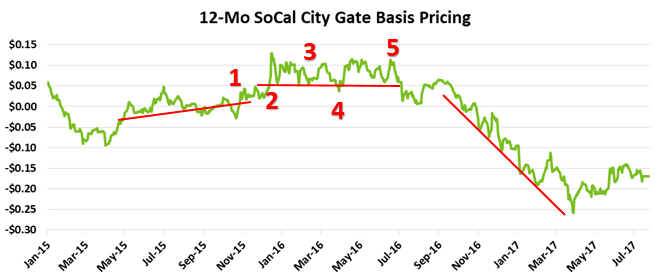
aliso-canyon-gas-storage-update2
The Aliso Canyon natural gas leak was a public health and environmental catastrophe. Thousands of families were relocated from their homes, many complaining of health issues. The damage done to... -
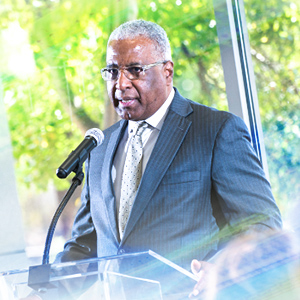 Fixing problems in aging buildings was taking a financial toll on the city of Birmingham, Alabama. City leaders spent emergency funds to make repairs and keep facilities in working condition. Failing building systems forced the closure of...
Fixing problems in aging buildings was taking a financial toll on the city of Birmingham, Alabama. City leaders spent emergency funds to make repairs and keep facilities in working condition. Failing building systems forced the closure of... -
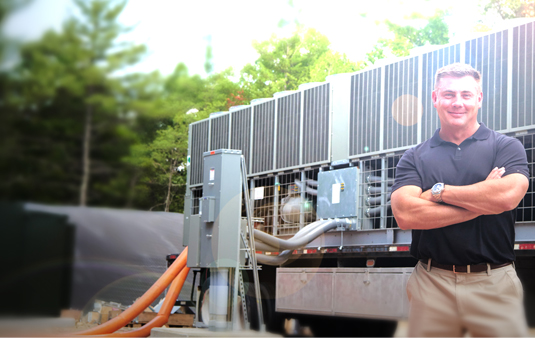
Organizing a Critical Systems Contingency Plan
From natural disasters to everyday mechanical failures, all facilities face some level of risk due to power, HVAC or compressed air failure. A failure could result in anything from minor discomfort due to lack of temperature control to losing hundreds ... -

aliso-canyon-gas-storage-update
In October 2015, Southern California’s Aliso Canyon, the second largest natural gas storage site in the U.S., sprung a leak. It took over four months to plug the blowout, which more than doubled the... -
 K-12 schools spend $8 billion annually on energy costs — more than they spend on computers and textbooks combined — and Energy Star® estimates about...
K-12 schools spend $8 billion annually on energy costs — more than they spend on computers and textbooks combined — and Energy Star® estimates about... -
For many builders and property managers, the biggest reason to switch to a ductless heating and cooling system is the overall ultimate cost savings...
-
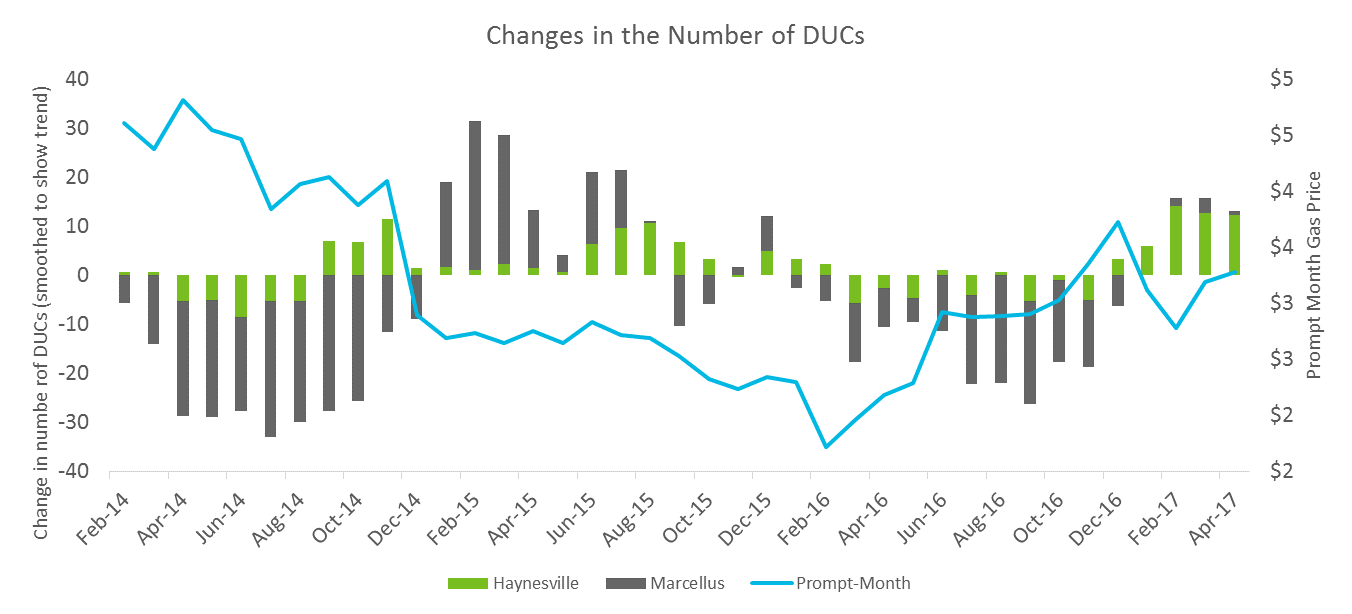 When natural gas producers successfully drill a new well, they do not automatically extract all the gas. Some of these wells are capped, their gas to be used another day...
When natural gas producers successfully drill a new well, they do not automatically extract all the gas. Some of these wells are capped, their gas to be used another day... -
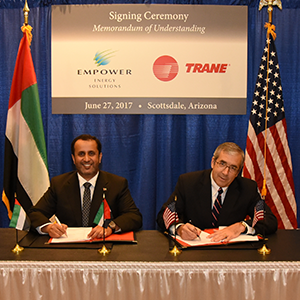 Climate action is a global issue and we strive to offer our customers around the world choices about when and how they want to achieve both their business and sustainability goals...
Climate action is a global issue and we strive to offer our customers around the world choices about when and how they want to achieve both their business and sustainability goals... -
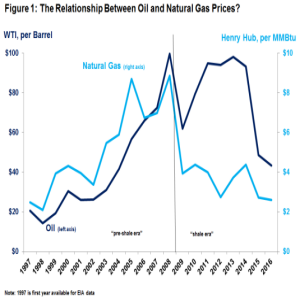
The Relationship Between Oil and Natural Gas Prices?
The link between crude oil and natural gas prices is critical for end-users: these two sources are increasingly being produced by the same companies and together supplied 70% of U.S. energy demand in 2016. To set the context, Figure 1 demonstrates oil and gas prices since 1997. -
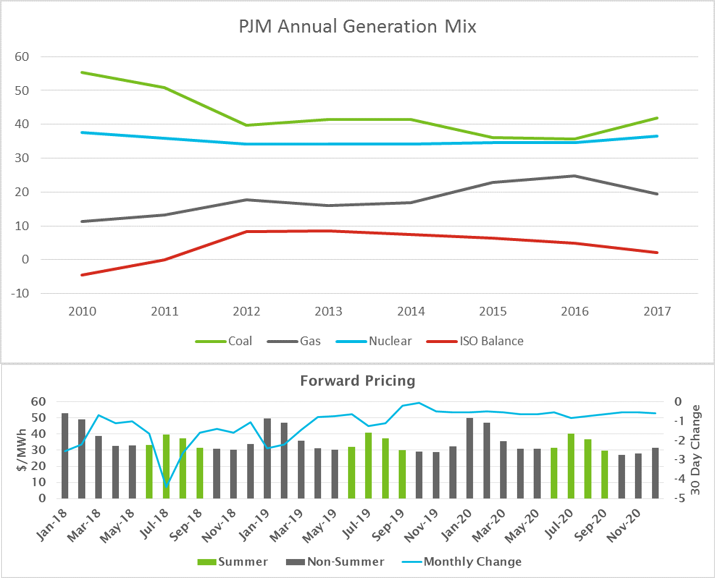 Power pricing in PJM is down. Since 2015, we have seen average prices for 2019 power drop from $45 per megawatt hour (MWh) to $35/MWh, with 2020 prices even lower than that...
Power pricing in PJM is down. Since 2015, we have seen average prices for 2019 power drop from $45 per megawatt hour (MWh) to $35/MWh, with 2020 prices even lower than that... -
When you think of most HVAC systems, you likely don’t think of a ductless system if you’re in North America.
-
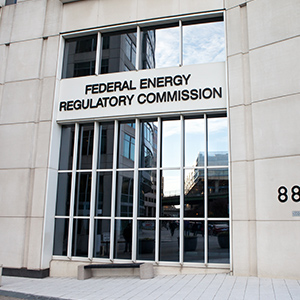
Senate-Comfirmation-Process-FERC
On May 25, two nominees for positions at the Federal Energy Regulatory Commission (FERC), Neil Chatterjee and Robert Poweleson, were interviewed by... -
Ingersoll Rand remains committed to climate action, including reducing energy demand and greenhouse gas emissions related to our products and operations. Regardless of political opinion...
-
The Organization of the Petroleum Exporting Countries and a group of high producing allies, including Russia, have agreed to extend their combined 1.8 million barrels per day production cuts for...
-
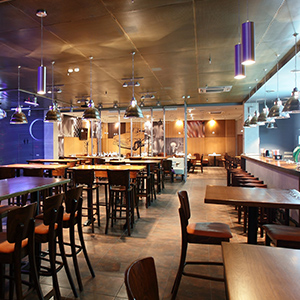
Reduce-Restaurant-Energy-Costs
Restaurant owners and facility managers are challenged every day to improve energy efficiency and reduce utility costs. So what can be done about it... -

Sustaining-Energy-Project-Results
With summer right around the corner, energy efficiency is at the top of every facility manager’s mind. No one wants to be forced into the position of having to choose between increases costs – either due to... -
 Simply put: the role of today’s facility manager is tough. Every day, in every corner of the world, facility managers are hard at work making a positive impact on our environments, people and communities. They do this while...
Simply put: the role of today’s facility manager is tough. Every day, in every corner of the world, facility managers are hard at work making a positive impact on our environments, people and communities. They do this while... -
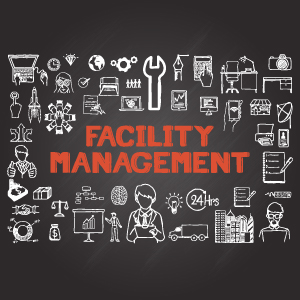 Buildings today are full of hidden potential and more connected than ever – with access to valuable data and insight, new levels of efficiencies can be reached. In honor of World FM Day, we’ve compiled a few tips from our experts to help you...
Buildings today are full of hidden potential and more connected than ever – with access to valuable data and insight, new levels of efficiencies can be reached. In honor of World FM Day, we’ve compiled a few tips from our experts to help you... -
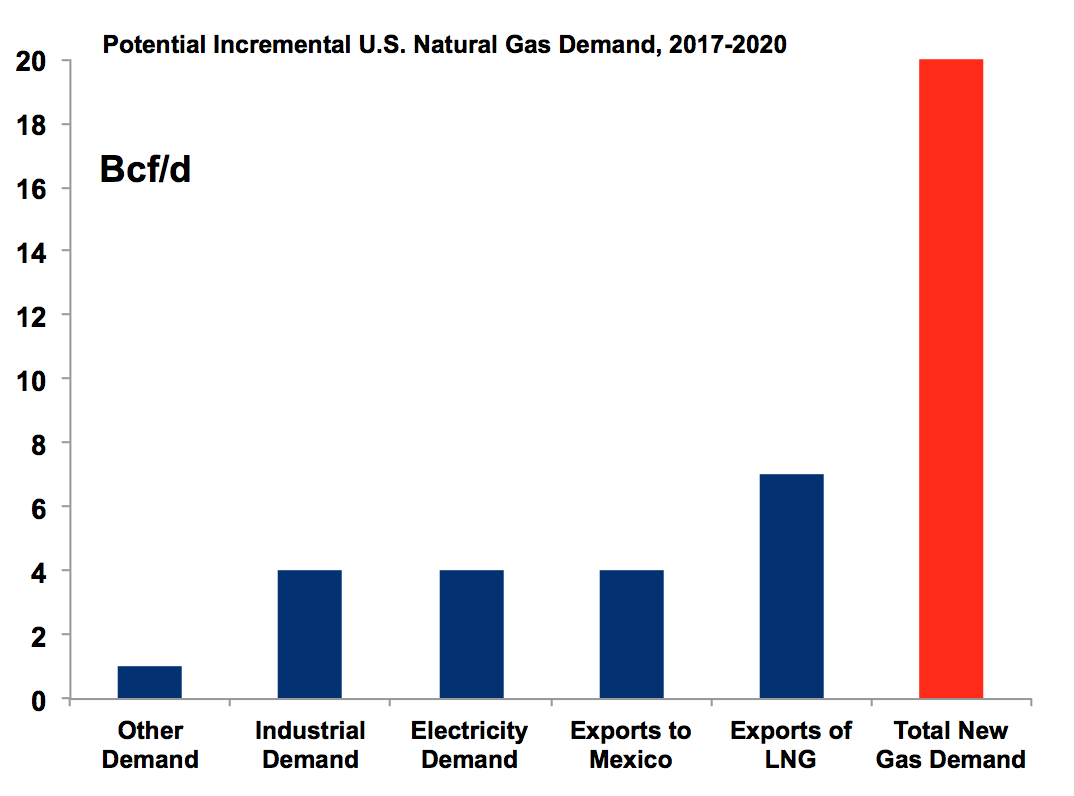 Thanks to a shale production boom, falling prices, and its cleaner burning and versatile nature, there has been a rush to utilize natural gas in the United States. Looking forward, there are three sectors that will significantly increase demand...
Thanks to a shale production boom, falling prices, and its cleaner burning and versatile nature, there has been a rush to utilize natural gas in the United States. Looking forward, there are three sectors that will significantly increase demand... -
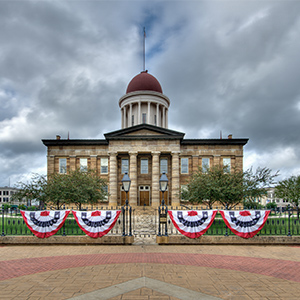 In the past months two states have passed legislation creating Zero Emissions Credit, or ZEC, programs. While the name “Zero Emissions,” seems to hint at a...
In the past months two states have passed legislation creating Zero Emissions Credit, or ZEC, programs. While the name “Zero Emissions,” seems to hint at a... -
Perhaps the biggest obstacle to our national goal of deploying more wind and solar energy is their incapacity to be physically transported to a power plant like coal or natural gas. Because of this, the generating facility must be...
-
 In the past weeks, two different efforts to change MISO’s capacity system have concluded. One, an in-the-weeds discussion on how transmission affects capacity pricing, ended with a...
In the past weeks, two different efforts to change MISO’s capacity system have concluded. One, an in-the-weeds discussion on how transmission affects capacity pricing, ended with a... -
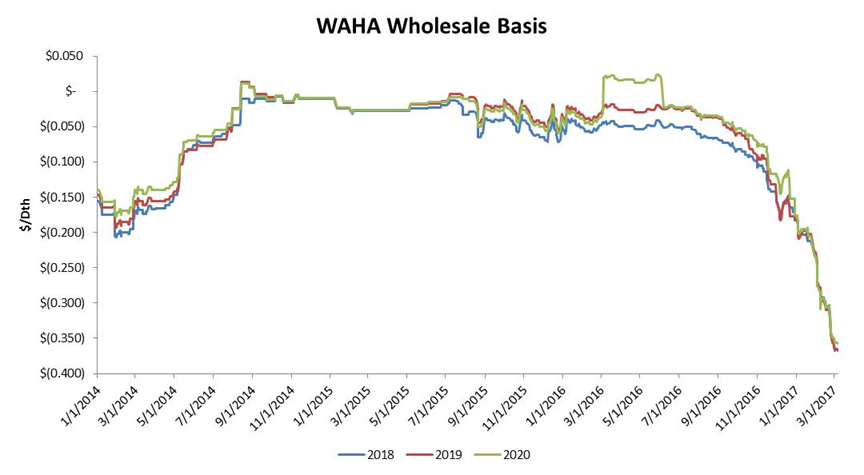 The natural gas and crude oil exploration and production (E&P) sector took a hit in 2016. A downturn in both gas and crude pricing, where both traded at prices not seen in more than...
The natural gas and crude oil exploration and production (E&P) sector took a hit in 2016. A downturn in both gas and crude pricing, where both traded at prices not seen in more than... -
 In late January, the New York Independent Service Operator (NYISO) released its updated Distributed Energy Roadmap. This document aims to address many of the concerns around...
In late January, the New York Independent Service Operator (NYISO) released its updated Distributed Energy Roadmap. This document aims to address many of the concerns around... -
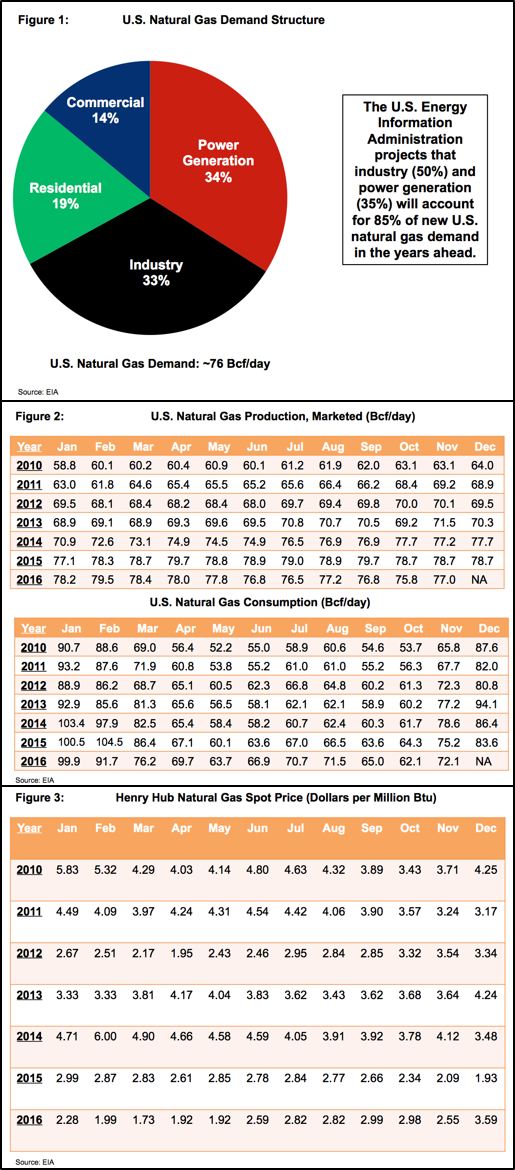 All natural gas consumers should understand the dynamic U.S. gas demand structure as the competition for gas is becoming increasingly fierce. Given low prices and broadening environmental goals, natural gas is easily...
All natural gas consumers should understand the dynamic U.S. gas demand structure as the competition for gas is becoming increasingly fierce. Given low prices and broadening environmental goals, natural gas is easily... -
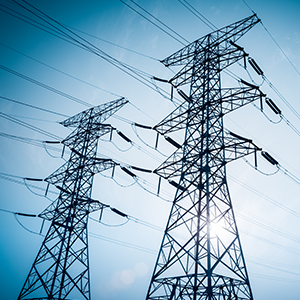 Independent Electricity System Operator, the Independent System Operator for Ontario, Canada, recently changed its capacity market to give medium-sized industrial customers the option to augment...
Independent Electricity System Operator, the Independent System Operator for Ontario, Canada, recently changed its capacity market to give medium-sized industrial customers the option to augment... -
The U.S. nuclear power industry faces an uncertain future. While nuclear has held its 18-20% share of U.S. electricity generation, the total number of nuclear reactors/plants has fallen to...
-
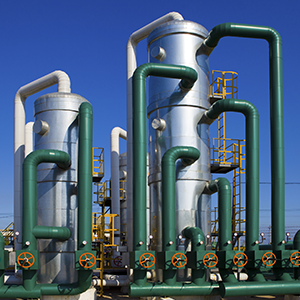 Over the past decade, the “shale revolution” has redefined natural gas production in the United States. The combination of advancements in hydraulic fracturing (fracking) and horizontal drilling opened up numerous new drilling basins in...
Over the past decade, the “shale revolution” has redefined natural gas production in the United States. The combination of advancements in hydraulic fracturing (fracking) and horizontal drilling opened up numerous new drilling basins in... -
Even since the price collapse started 2014, natural gas production in the Marcellus has increased nearly 15% to 18.3 Bcf/d, with output in the neighboring Utica up 130% to 4.1 Bcf/d. These two northeast shale plays are almost single handedly reversing the U.S. gas market to flow more north to...
-
 "On December 5th the New England Clean Power Link (NECPL) received its Presidential Permit, a required license for any transmission project that links the U.S. power grid to that of another country. The $1.2 billion project, financed by... "
"On December 5th the New England Clean Power Link (NECPL) received its Presidential Permit, a required license for any transmission project that links the U.S. power grid to that of another country. The $1.2 billion project, financed by... " -

Globalizing-Natural-Gas-Market
Today, only about 33% of all natural gas used is traded internationally, versus 66% for oil. Gas has typically been sold in three regionalized markets with different contract structures; North America (hub-based), Asia Pacific (oil-indexed), and Europe (hub-based and oil-indexed). But, the sale of LNG is transforming natural gas from... -
 After weeks of negotiations, OPEC ministers in Vienna on Wednesday agreed to lower their oil supplies to ease a global glut that has halved prices since 2014. The 14 Member Countries worked a deal to cut crude production by...
After weeks of negotiations, OPEC ministers in Vienna on Wednesday agreed to lower their oil supplies to ease a global glut that has halved prices since 2014. The 14 Member Countries worked a deal to cut crude production by... -
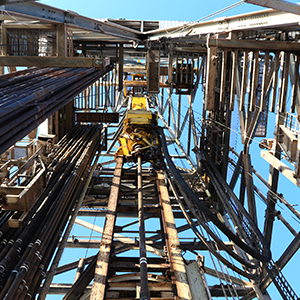 The oil and gas price collapse has discouraged investments in future production in recent months and is setting up a potential spike in prices. The industry is caught in an underinvestment cycle that could reverberate much sooner than most realize...
The oil and gas price collapse has discouraged investments in future production in recent months and is setting up a potential spike in prices. The industry is caught in an underinvestment cycle that could reverberate much sooner than most realize... -
 President-elect Donald Trump is now in place. While promising to “cancel” the COP21 Paris Accord accepted under President Obama and pushing a fossil fuel-led revival to underpin job growth, a Trump administration will rearrange domestic energy and...
President-elect Donald Trump is now in place. While promising to “cancel” the COP21 Paris Accord accepted under President Obama and pushing a fossil fuel-led revival to underpin job growth, a Trump administration will rearrange domestic energy and... -
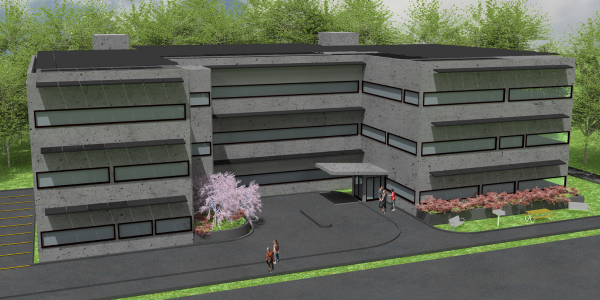 It’s an often-repeated statistic: about 40 percent of the energy used in this country is consumed in residential and commercial buildings. That’s more energy than is used in both the transportation and energy sectors. Alarmingly, however, much of that energy is wasted — 30 percent in the average commercial building, according to Energy Star. So, what can be done?
It’s an often-repeated statistic: about 40 percent of the energy used in this country is consumed in residential and commercial buildings. That’s more energy than is used in both the transportation and energy sectors. Alarmingly, however, much of that energy is wasted — 30 percent in the average commercial building, according to Energy Star. So, what can be done? -
 The catalyst for Mexico’s historic 2013 Energy Reforms was the 2004 peaking of the Cantarell oil field in the Gulf of Mexico, once responsible for over half of Mexico’s energy production and the second largest oil field in the world.
The catalyst for Mexico’s historic 2013 Energy Reforms was the 2004 peaking of the Cantarell oil field in the Gulf of Mexico, once responsible for over half of Mexico’s energy production and the second largest oil field in the world. -
 The U.S. Energy Information Administration’s (EIA) Weekly Storage Report and the overall natural gas storage inventory have long been drivers of NYMEX natural gas pricing in the United States. The weekly report, released at 10:30 AM ET on Thursdays, details the weekly changes to domestic natural gas storage inventory levels and tends to be followed by a quick flurry of trading activity....
The U.S. Energy Information Administration’s (EIA) Weekly Storage Report and the overall natural gas storage inventory have long been drivers of NYMEX natural gas pricing in the United States. The weekly report, released at 10:30 AM ET on Thursdays, details the weekly changes to domestic natural gas storage inventory levels and tends to be followed by a quick flurry of trading activity.... -
 On September 27th the DC Circuit Court held hearings on the Clean Power Plan (CPP), an action that many have wanted since its proposal by the Environmental Protection Agency (EPA) last August.
On September 27th the DC Circuit Court held hearings on the Clean Power Plan (CPP), an action that many have wanted since its proposal by the Environmental Protection Agency (EPA) last August. -
 With over 80% of all capital decisions being made by Executives, many healthcare organizations since 2009 have downsized their middle management ranks and thus more scrutiny is being placed on lower dollar capital decisions...
With over 80% of all capital decisions being made by Executives, many healthcare organizations since 2009 have downsized their middle management ranks and thus more scrutiny is being placed on lower dollar capital decisions... -
 Despite some of the lowest prices in 20 years, U.S. natural gas production has continued to increase. Thanks to the widespread deployment of hydraulic fracturing and horizontal drilling technologies, national output has gained every year since 2006 and is closing in on...
Despite some of the lowest prices in 20 years, U.S. natural gas production has continued to increase. Thanks to the widespread deployment of hydraulic fracturing and horizontal drilling technologies, national output has gained every year since 2006 and is closing in on... -
 The dog days of summer will soon be in your rear view mirror. Even though the temperature is falling, your building and equipment will still be called upon to work hard in the coming months...
The dog days of summer will soon be in your rear view mirror. Even though the temperature is falling, your building and equipment will still be called upon to work hard in the coming months... -
 Even though the temperature is falling, your building and equipment will still be called upon to work hard in the coming months. And now is the time to look ahead to ensure your systems and equipment are up to the task...
Even though the temperature is falling, your building and equipment will still be called upon to work hard in the coming months. And now is the time to look ahead to ensure your systems and equipment are up to the task... -
 The U.S. natural gas industry has gone global via the export of LNG. In the first six months of this year, nearly 50 Bcf of LNG was shipped out, and the U.S. is set to become a net LNG exporter in 2017. The rapidly globalizing gas market is a critical new outlet for...
The U.S. natural gas industry has gone global via the export of LNG. In the first six months of this year, nearly 50 Bcf of LNG was shipped out, and the U.S. is set to become a net LNG exporter in 2017. The rapidly globalizing gas market is a critical new outlet for... -
 In most cases in life, it’s better to be proactive than reactive, and now is the time to consider what improvement projects need to be done that will pay off...
In most cases in life, it’s better to be proactive than reactive, and now is the time to consider what improvement projects need to be done that will pay off... -

Now is the Time to Consider Building Improvements
As summer winds down, you likely have a better idea of what improvements can be made in your building to help optimize energy efficiency, occupant comfort and equipment performance. Now is a good time to consider... -

How to Identify Opportunities for Improvement
Taking stock of issues as summer wraps up — and getting a clear picture of the health of your systems and equipment — will help you prepare for the next summer season... -
 Each season is like a history lesson about your building — allowing building owners and managers to capture a snapshot of equipment performance, efficiency, energy use and...
Each season is like a history lesson about your building — allowing building owners and managers to capture a snapshot of equipment performance, efficiency, energy use and... -

Are Renewable Energy Options Right for Your Building?
Renewable energy solutions can be a feasible option to help reduce your building’s dependence on the grid so you are buying less energy in the summer... -

Are Renewable Energy Options Right for Your Building?
Renewable energy solutions can be a feasible option to help reduce your building’s dependence on the grid so you are buying less energy in the summer — and all year long. -

How Can Renewable Energy Benefit Your Building This Summer and All Year Long
Renewable energy solutions can be a feasible option to help reduce your building’s dependence on the energy grid so you are buying less energy in the summer — and all year long... -

3 Ways to Control your Energy spend this Summer
With summer temps hitting record levels in May and June, it is important to look for ways to control energy costs. Energy spend is a big part of your budget, and... -

How understanding your Energy costs can save you Green this Summer
With summer temps hitting record levels, building owners and managers are looking for ways to control energy costs. Your energy spend is a big part of your budget, and there are two main ways to impact it... -

Being prepared for power disruption is as easy at 1, 2, 3
A power outage can result in business interruption that is costly for you and your building tenants. -

Canada's Future Natural Gas Production
With the North American shale revolution the key energy development of the past decade, it’s surprising to know that Canada’s natural gas production has actually been falling. Canada is still the world's... -
 Summer’s extreme heat and potential for severe weather increase the risk of unexpected equipment failure and power outages. These disruptions can occur for many reasons...
Summer’s extreme heat and potential for severe weather increase the risk of unexpected equipment failure and power outages. These disruptions can occur for many reasons... -
 Regulators are facing a dilemma of what to do with nuclear power generation in the coming years. Over the past two months, the retirements of four nuclear power plants across Illinois, California, and Nebraska have been announced...
Regulators are facing a dilemma of what to do with nuclear power generation in the coming years. Over the past two months, the retirements of four nuclear power plants across Illinois, California, and Nebraska have been announced... -

Reducing Utility Costs in the Summer begins with Monitoring Energy use
Commercial building owners and managers know that summer typically brings much higher utility bills. But what you may not know is that even simple changes can have a big impact on your utility bills... -

Want to Reduce Utility costs this Summer? It starts with Monitoring
Commercial building owners and managers are often searching for relief from the much higher utility bills that summer can bring. This is especially true in California, where average electricity prices for commercial customers last summer were... -

Manage the Summer Heat with these Building Technology Platforms
Finding performance-improving solutions for commercial buildings is important all year long, but it is especially critical in the summer. The increased demand on your building and its systems can result in... -

Better Control for Greater Efficiency
Finding performance-improving solutions for buildings is important all year long, but it is especially critical in the summer. The increased demand on your building and its systems can result in... -

Four phases of Retrocommissioning
There are steps you can take to minimize the impact summer’s increased demand has on your building, even on the hottest days. Equipment is often... -

Don't let the Urban Summer heat derail your Building's Performance
Summer in New York City can present a unique set of challenges for commercial building owners and managers. Beyond the need for increased power to cool buildings, there are a number of... -

How Heat Impacts Building Performance
Beyond the need for increased power to cool buildings, there are a number of factors that can put increased pressure on your building systems in the summer months, including... -
 Last week, fear of increased heat across Texas pushed ERCOT North’s August peak contract price to $89.90 per MWh, an increase of...
Last week, fear of increased heat across Texas pushed ERCOT North’s August peak contract price to $89.90 per MWh, an increase of... -

Keep your Building On-Track this Summer
Ongoing validation of your results is a key step to help ensure your strategies are yielding big results. Validation helps keep your building on track, while also gaining... -

Use validation to maintain your savings
Validating your outcomes is a key step to help ensure your strategies are yielding big results. Validation helps keep your building on track while also gaining the buy in, resources and funding you may need for... -

Gain Control with these 10 Contingency Planning Steps
Summer’s extreme temperatures and unpredictable severe weather can result in equipment or power outages. Being prepared for unexpected building failures can save you valuable time and... -

Federal Judge Overturns Fracking Rules
On June 21, U.S. District Court Judge Scott Skavdahl ruled that the Bureau of Land Management (BLM) does not have the authority to create new rules and regulate hydraulic fracturing (fracking) on... -

Stay cool while avoiding these common summer pitfalls
Once your building is summer-ready , it's important to be aware of some common pitfalls that can keep your building from performing at its most efficient level... -

Charting a path to summer savings
From small improvement projects to large energy strategies, there are steps you can take to reduce costs during the summer months, transforming your building into an asset that can make you more profitable... -
Beat the Heat - Make sure your Building is Summer-ready
We all know it is coming, but somehow it still sneaks up on us. Summer. It brings hotter temperatures, severe weather, and greater demand on building systems and the bottom line. Commercial customers typically pay... -
Made in the Shade: How to prepare for the hottest months of the year
Summer brings hotter temperatures — and higher energy bills. Energy costs for commercial buildings can run up to 35 percent higher in the hottest months of summer compared to other months of the year... -
PJM Committee Advances Electricity Capacity Market Proposals
Last month, the PJM Interconnection's Market Implementation Committee advanced proposals related to capacity performance, agreeing to add three items to the list of parameters by which a resource’s schedule might be limited. -
U.S. Energy Information Administration Confirms Year-Over-Year Drop in U.S. Oil Production
With the release of the U.S. Energy Information Administration’s (EIA) latest Short Term Energy Outlook (STEO) yesterday came finalized figures for December 2015, allowing for balance of the year analysis, and revisions to forecasts. -
U.S. Exports First LNG Cargo from Gulf Coast
Regardless of the ultimate end game for U.S. LNG exports, this week’s shipments from Sabine Pass represent a noteworthy step in exposing a generally-insulated domestic market to more international influence. -
Trane Improves Safety at Hopkins County Jail
When Hopkins County Jail discovered outdated gas heat exchangers were at risk of leaking CO2 into a building with hundreds of inmates, its technicians knew they needed to take immediate action... -
Increasing Efficiency and Driving Innovation at Mercedes-Benz USA
Whether you’re part of a small business, or a multinational corporation, no business is immune to the effects of an underperforming building comfort system. When a chiller failed at Mercedes-Benz USA, they turned to Trane, a longtime partner, to find a permanent, cost-effective solution. -
Glycol Improves Efficiency, Reduces Maintenance Costs for Restaurant Kitchens
Advancements in heating, ventilation and air conditioning (HVAC) technology have given restaurants a powerful system with a dual purpose—chilling refrigeration appliances while keeping facilities comfortable. -
Emergency Contingency Planning: 7 Steps to Follow
Extreme weather conditions underscore the need for facility teams to prepare for the worst that nature can throw at their buildings. Given their critical missions, healthcare and educational organizations must be prepared to respond quickly and efficiently when a blizzard, flood, tornado, hurricane or other disaster — natural or man-made — strikes... -
How the Built Environment Impacts Productivity and Risk Management
Managing the built environment has evolved just like every other aspect of our lives. We expect more than the minimums of code compliance and a roof that doesn’t leak. Healthy, productive, secure and sustainable — all are words that apply in today’s facility management world. This post is part two... -
Translating Energy Management and Facility Management into Impacts that Matter
Buildings impact business results. Or, perhaps better said, the environments we create to work, eat, play, learn, and live in impact the quality, productivity, quantity, and efficacy of all indoor activities we do in our modern society... -
Trane Improves Comfort, Saves Costs for Vancouver Area Mall
When the heat of summer sets in, shoppers seek relief in shopping malls where they can shop, dine and spend time in air-conditioned comfort. But when indoor comfort systems aren’t getting the job done, it can impact summertime traffic, and the bottom line, for mall owners... -
Trane Sheds Light on Energy Savings at Robins AFB
For the 78th Civil Engineering Squadron at Robins Air Force Base (AFB), home to 60 military units and the largest industrial complex in Georgia, the poor lighting levels in its hangars and engine shop was a cause for concern in regards to safety and convenience... -
How Trane Created a Better Learning Environment
When heat exchangers on the rooftop units at Murfreesboro School District’s high school cracked, administrators had to act quickly. Without a budget to completely finance a repair or upgrade, the district needed to rely on matching funds from the state... -
How a Three-Legged Stool Can Transform Your Building
There are three main factors that combine to impact how much money building owners and operators spend on energy. Think of these factors as three legs of the same stool — letting any one factor get out of balance will result in an unstable situation... -
Saving Energy While Improving Campus Operations in North Carolina
Higher education institutions face unique challenges when it comes to reducing energy costs. Colleges and universities often have multiple campuses, each with numerous buildings that may alternate from full capacity to empty several times each day. This can create challenges not only for heating and cooling, but lighting and water resource planning as well... -
Delivering a System that Meets LEED Certification
Contractors and developers may face various challenges throughout the construction of a new building. Missed construction milestones and bad weather delays are a couple of the multitude of issues that a developer must be prepared to deal with... -
How a Luxury Resort Unlocked $500K in Savings
(Hint: It has nothing to do with room rates or green fees) Owners at Pacific Palms Resort in City of Industry, California were at a crossroads. Many of the resort’s heating, ventilation and air conditioning (HVAC) systems were original to the facility... -
How Trane Building Advantage Improves Your Building
This week, Trane launched the new Trane Building Advantage brand at the National Facilities Management and Technology (NFMT) Conference in Baltimore. The brand represents the suite of energy services... -
Realizing Energy Efficiencies in Water Treatment
It’s important for municipalities to manage their water treatment facilities with an eye to efficiency in every phase of the water treatment cycle. Trane, a known performance leader in the wastewater treatment industry, helped a client do just that in... -
Trane Keeps the Lights on in City Parks
In Vestavia Hills, Ala., a suburb outside of Birmingham, city leaders knew that the cost to illuminate their sports fields, pools and tennis courts wasted budget dollars. Light fixtures were greater than 30 years old — so old, in fact... -
How to Maintain Cost-Efficient Healthcare Facilities
For Hardin Medical Center in western Tennessee, an outdated HVAC system affected its ability to create an optimal environment of care, especially in the critical labor and delivery areas. Read how Trane helped update its HVAC system. -
How Trane Leverages Public-Private Partnerships
With continued variability in temperatures throughout the year, increasing energy efficiency becomes a top priority for organizations across many markets, including the government... -
Teaching the Value of Sustainability
At Trane, we think it’s important to enhance sustainability education among the upcoming generation of FMs. A recommendation by the Center for Green Schools at USGBC and Houghton Mifflin Marcourt (HMH) advocates for just that... -
Energy and Sustainability: Key Factors to Staying Competitive
Research results from Ecova predict that 2014 will be a challenging year for those responsible for managing energy resources. According to the research, 2014 will be the year that forces companies to take steps to improve results and build... -
Revised Standards May Impact Building Energy Measurement
According to a ACHR article, ASHRAE’s latest revision to its Standard 105-2014 spells good news for the number crunchers among us as it creates a common basis in reporting performance data for... -
Why You Should Use Energy Modeling Tools
In today’s cost-sensitive market, building and facility managers are proactively seeking solutions to help control costs while improving building efficiency. They all want to know, “How do I get more for less?” I aimed to answer this question in my presentation... -
2014 Could Be Even Better for Energy Efficiency
This year promises to be another strong one for energy efficiency. For example, several actions included in Climate Action Plan will take place in 2014, such as the release of draft CO2 emissions standards for existing power plants. We think these measures are taking us... -
Tech Tip: Manage Buildings Effectively in Extreme Weather
Web-based tools can help building managers optimize building operation to meet tenant needs and energy consumption goals, utilizing alarm functions that alert the property manager if temperatures fall outside of desired levels... -
Trane Helping Customers Realize More Efficient Buildings
In February, Trane featured a post highlighting Hammer & Hand’s top 10 predictions for the high performance building industry in 2014. Today, we offer thoughts on these predictions and how our company and solutions fit into forecasted trends... -
Muse d'Orsay Saves Energy, Ensures Long-Term Sustainability with Trane
When working with historic buildings, one of the unique challenges we face is upgrading building infrastructure systems without disturbing the unique architecture or the priceless and irreplaceable artifacts within. -
U.S. Government Moves to Ramp Up Commercial Building Efficiency
Last week, the U.S. House of Representatives passed a bill designed to ramp up efficiency in commercial buildings and data centers known as the “Energy Efficiency Improvement Act of 2014.” -
How Does Your Company Define Sustainability?
Green construction is expected to increase along with overall construction activity in 2014. Despite market pressures, or perhaps because of them, companies and building owners are emphasizing sustainability measures that lead to greater building efficiency, lower costs and a more productive workforce. -
How Energy Modelling Tools Can Create Efficient High Performance Buildings
An inside look at why it is important to engage in modelling before you make retrofit decisions, including financial factors to consider and how to use energy modelling to predict results -
What's Next for High Performance Buildings?
Green builder Hammer & Hand recently released its ten predictions for the US high performance building industry in 2014. To no surprise, the predictions cover a wide-range of variables, including the impact of new products entering the market, procedural and policy shifts that focus on performance-based measures, and the international energy efficiency movement’s effect on the US market. -
Improving Performance of Historic Buildings While Preserving them
More than 1.4 million places – including buildings, districts and landmarks – are listed on the National Register of Historic Places, which receives more than 30,000 applications each year. Most are at least 50 years old and meet one or more of the following four criteria for historic status: recognized as the site of an historic event, associated with a famous person, designed or built in a distinctive way, or yielded important historic or prehistoric information. -
How Building Owners can find the Right Way Forward in Energy Efficiency
Energy efficiency is a journey, and the sooner started the better. Waiting for the next generation of technology sacrifices a significant net present value opportunity, and can also lead to the paralysis of... -
Sustainability in Higher Education - Bringing New Life to Old Institutions
When most people hear the word “sustainability” they think of consumer products, like post-consumer paper cup`s from a local coffee shop. It’s harder to get people to understand how sustainability applies to our infrastructure, like the buildings in which we all live, work, learn and play. -
Data Centers, Warehouses, and Others Impacted by Newest Version of LEED
The U.S. Green Building Council (USGBC) launched the newest version of the LEED (Leadership in Energy and Environmental Design) Green Building Program, LEED v4, at the Greenbuild International Conference on November 20, 2013 in Philadelphia. -
Ducts Unlock Hidden Energy Savings Potential
Is there money hidden in your building’s heating, ventilation and air conditioning (HVAC) system? One often overlooked cost savings opportunity may be lurking in your ducts if your building uses a traditional... -
Green Building Congress Goals for India
There is a huge opportunity to expand the number of green buildings in India, which currently make up less than five percent of the market, according to recent discussions at the 2013 Green Building Congress. -
Energy Efficiency's Economic Impact May Surprise You
The role of energy efficiency in our daily lives is a complicated one, according to an article from Greentech Media. -
A Tale of Two Buildings [Author: Neil Madeis]
A recent Washington Post story noted how green construction has become a common trend for new office buildings, with one-third of all new office space completed in 2011 being designated “green.” But beyond the... -
Industrial Energy Efficiency is Key to Global Competitiveness
The BlueGreen Alliance, a partnership between labor unions and environmental organizations, recently released a new policy report on industrial energy efficiency. It notes that America’s manufacturing sector – the world’s largest – can keep its lead by taking advantage of the huge opportunities to increase energy efficiencies, cut waste and save on operating costs. -
Windy City Building Owners Energy Savings Claims
Although several U.S. cities have energy efficiency requirements for large commercial and residential buildings, Chicago has become the first one to mandate the verification of building energy data. -
The Real Drivers of High Performance Buildings
There has been a lot of discussion in the industry lately about the factors that are really driving how people are thinking about high performance buildings. -
Don't Let Rising Costs of Building Materials Cut Short Your Journey
According to a study by Navigant Research, the worldwide market for green construction materials will more than double in the next seven years to more than $250 billion by 2020. Just how this impending spike in demand will impact the cost of green construction is difficult to predict, but it's safe to say that construction costs will increase for projects that involve these materials. -
Is the Construction Industry Resisting Lifecycle Cost Decision Metrics?
A recent Environmental Leader article claims that decision-makers at many organizations are faced with budgetary restrictions that often hinder the adoption of the best suited technology or project, even when the better solution will cost less over the long haul. -
Technology Advancements will Drive Increased Building Efficiency
A recent GreenBiz.com article highlights a report by Navigant Research that says the global smart grid market will more than double by 2020. We’re not surprised to read this, as we’ve long said that when it comes to satisfying the world’s almost insatiable appetite for energy, "nothing beats energy efficiency." Smart technology is at the heart of today's greatest advancements in building energy efficiency. -
Energy Management Services for Small/Mid-size Businesses
Are small and mid-sized businesses being left out of the global race to improve energy efficiency? That’s the argument made by a recent article by Greentech Media. -
Benchmarking Can Reveal Surprising Results
We’ve discussed the critical importance of evaluating high performance buildings often on this blog (for example, here and here), and a recent article from Greentech Media highlights this again. In short, it’s never enough to simply cut the ribbon on a high performance building and pat ourselves on the back. Continuously evaluating and benchmarking against business goals is the only way we will continue to strengthen our technology, the buildings we support and the industry as a whole. -
10 Concepts to Take Energy Efficiency to New Heights
The global drive to improve energy efficiency, manage overhead costs, and reduce environmental impact has given facility managers in most organizations a seat at the table—or at least the attention of top management. Buildings are organizational assets, after all, and organizations need to achieve an acceptable return on their enormous investment in facilities. -
A Collective Approach to Increase High Performance Building Adoptions
The research firm Frost & Sullivan recently noted the changes and evolution of the high performance building industry in the last several years, driven in large part by the growing IT influence on physical systems and the recession’s financial pressures, have sped up the development and adoption of many efficiency technologies. -
Trane Experts 'Next Big Thing' in Energy Efficiency in Sustainable Industries
Can ‘the Next Big Thing’ Wait? In a recent article published in Sustainable Industries, Ingersoll Rand and Trane experts Randy Newton and Matt Gates analyze today’s business trends to talk about how emerging technologies, as well as the basics of energy efficiency, can have a significant impact on individual building performance as well as the overall global demand for energy. -
Small Things Make a Huge Difference
We often think about high performance building construction or retrofits as large, multi-month or multi–year projects. But it’s important not to overlook the small things that may end up making a huge difference in the performance of your building and the health of your occupants. -
Subjective Assessments of High Performance Buildings
When measuring the performance of a building, whether new or retrofitted, it’s easy to get caught up in the metrics: the speeds, the volumes, the percentages, the of lengths time…the list goes on and on. But what many of us forget is the importance of subjective assessments when evaluating the operations of our high performance building (HPB). -
Energy Conservation Measures- Holistic Approach
In Part 1 of our series, we examined how commercial building managers can create a strong business case for investment in energy conservations measures (ECMs) as part of their high performance building journey. In this piece, we will look further into the strategies and tools for justifying the up-front costs using a holistic approach that includes tangible and intangible benefits. -
Energy Conservation Measures-the Business Case
Energy conservation measures (ECMs) in commercial buildings can range from CFL lighting to the installation of a maximum efficiency HVAC system, but they typically fall into the categories of water, electricity or gas. When considering ECM investments, building managers must weigh the upfront costs of the investment with the energy and financial savings, and make the argument to leadership as to why the investment is worth precious capital dollars in the journey to becoming a high performance building. -
Upping the Ante on Sustainable Buildings
An office is building in Seattle is taking the concept of sustainable building to a whole new level: Think LEED (Leadership in Energy and Environmental Design) certification on steroids. -
The Balance Between Building Envelope and Occupancy Comfort
A building envelope is the outer shell of the building that is used to help maintain the indoor environment and control its climate. There’s been a lot of discussion in the high performance building industry about how to leverage this component efficiently and how to manage any trade-offs with occupant comfort, so I read with interest this article from Consulting-Specifying Engineer Magazine about testing and commissioning best practices. -
Lessons Learned from 100 Years of Building Innovations-Part 2
In the last post we talked about how modern technologies and building practices are boosting building performance. But with construction starts remaining low, the real opportunity to unlock energy savings potential lies within the current building inventory. In this post we’re expanding on the energy saving opportunities with existing buildings. -
Lessons Learned from 100 Years of Building Innovations-Part 1
Sustainable technologies like wind and solar get a lot of press coverage, but when it comes to satisfying the world’s almost insatiable appetite for energy nothing today beats energy efficiency. -
Lower Costs, More Benefits: Green Building Market is Growing Up
The World Green Building Council (WGBC) released a report this month that found the cost of constructing a green building is typically on par with a conventional one. -
Evaluating the Journey of a High Performance Building
The construction or retrofit of a high performance building is exciting: The new technology, the gadgets, the occupant buzz and the eventual launch can all make for a very dramatic affair. But what’s less sexy – and no less important – is what happens afterwards. -

IntelliPak™ I Can Help Achieve High Performance Building Goals
Although the International Air-Conditioning Heating Refrigeration (AHR) Expo was held in January, concerns about optimizing a building’s cooling system didn’t go away with the winter temperatures. Many expo attendees wanted to hear more about the efficiency tools that could help them achieve a high performance building year-round. I was especially excited to talk with them about the latest, ultra-efficient cooling system from Trane: The IntelliPak™ I Unitary Rooftop System. -

Intelligent Variable Air Systems Deliver Better Energy Efficiency
I recently returned from the 2013 International Air-Conditioning, Heating, Refrigeration (AHR) Expo in Dallas, where there was tremendous interest in Trane energy efficiency solutions. In fact, according to HPAC Engineering Magazine, the Trane booth was one of "the most talked about and most visited booths at the event." -

Trane Launches its Second Century with New Innovations
Trane celebrated 100 years of innovation at the 2013 International Air-Conditioning, Heating, Refrigeration (AHR) Expo in Dallas recently. At the show we presented and demonstrated several new forward-thinking building solutions that create comfortable, efficient and productive environments to benefit industries like healthcare, education, retail, data centers and others. -
How Intesa Sanpaolo Cut its "Invisible" Inefficiencies
Sometimes the most important energy problems are ones we can’t see. Unlike pollution streaming from a power plant or exhaust billowing from a car’s tailpipe, other forms of pollution and waste are not so easy to spot. -
HVAC technologies Help Reduce Spread of Infection-Part 2
The Center for Health Design (CHD) estimates that as many as 30 percent of hospital infection threats are airborne and numerous cases of MRSA (Methicillin-resistant Staphylococcus aureus) and other types of infections have been traced directly to problems with ductwork, ventilation controls, air exchange ratios and room pressure balance. -
Improving Physical Environment to Maximize Infection Control-Part 1
Reducing the incidence of hospital-acquired infection (HAI) is a priority for everyone connected with the healthcare industry. The reasons are obvious. According to the U.S. Department of Health and Human Services, improving HAI rates by 40 percent from a 2010 baseline would save more than 60,000 lives and prevent 1.8 million patient injuries by 2013. -
Trane High Performance Building Solutions Drive Efficiency and Savings for Financial Institutions
Financial institutions handle critical data every day – data that requires specialized environments to ensure that information is processed without interruption. If a data center goes down for even 15 minutes, an organization could lose millions of dollars in information. Data centers have significant and specialized cooling needs in order to handle the heat loads associated with computational processes. Hot spots and inadequate cooling can cause costly disruptions and are daily concerns. -
Infrastructure Enhancements at Republic Plaza Result in Energy Savings
Infrastructure upgrades at the Republic Plaza building, one of Singapore’s tallest skyscrapers, have made it one of the most efficient buildings in Singapore. The anticipated energy savings are estimated at four million kilowatt-hour of energy, or an annual savings of S$870,000. This is equivalent to powering 1,300 four-room apartments annually. The 66-story, 280-meter high Republic Plaza is a Grade A office building located at Raffles Place in the heart of Singapore’s Central Business District. -
Upgrades at Old Colony Regional Vocational Technical Cut Energy Consumption
Old Colony is a regional vocational technical high school offering a broad range of vocational careers for students in the Rochester, Mass., area. Energy efficient infrastructure upgrades at Old Colony have reduced energy consumption by more than 50 percent while improving the learning and teaching environment. An ongoing service and maintenance program helps ensure that all systems continue to run at optimum levels. -
The primary concern for food manufacturers is meeting or exceeding customer expectations by ensuring the consistency and quality of their product. This approach helps shape how these manufacturers view their building systems and manufacturing processes as well.
-
K. Raheja Corp. in Mumbai Drives Environmentally Responsible Construction
As the global demand for energy continues to rise, real estate developers are increasingly called upon to build more energy efficient structures that cost less to operate and have minimal environmental impact. One Trane customer that is raising the bar on green buildings is the K. Raheja Corp. in Mumbai. -
Post Hurricane Sandy- Tips/Resources for Buildings Affected by Storms
Hurricane Sandy and the Nor’easter that followed a week later left a swath of destruction and a soggy mess in their wake. With the storms behind them, owners and operators of tens of thousands of commercial buildings – including office buildings, schools, hospitals, malls and factories – face the cleanup and remediation challenge of a lifetime. They need to get their buildings up and running quickly, but they also need to make sure that they are restoring a safe, healthy and comfortable indoor environment for building occupants and visitors. -
If someone told you that they had a service used by 267,000 buildings comprising 40 percent of the non-residential market in the United States you’d be pretty amazed right?
-
Infrastructure Improvements Increase Operational and Energy Efficiency
Long gone are the days of paper deposit books and hand written banking records, replaced instead by high-tech computerized data centers which make data readily available to allow banks to move at the speed of today's global business environment. While data centers have revolutionized the way businesses store and access information, the data servers themselves often consume a tremendous amount of energy. -
Manufacturing Facility Increases Energy and Operational Efficiency, Sustainability, Comfort
Ferrero may be best known for delicious chocolate creations wrapped in gold foil, but the global confectionary company is setting an industry “gold standard” at its Belsk, Poland manufacturing plant by embracing environmentally responsible, energy-efficient systems. -
How Healthcare is Driven Towards High Performance
We often focus on high performance from the perspective of building systems, but rarely do we get the opportunity to learn about “high performance" as seen through the eyes of a vertical industry. -
Can a Service Company Provide Better Service by Coming Out to Your Building Less?
If you asked 100 building managers to define good customer service from the technician's that service their building's systems and equipment, the top answers would likely include responsive, knowledgeable and reliable. For many building managers, the mere presence of a technician on sight is enough to instill comfort that building's systems are being brought up to, and kept in, good service. -
A Better Alternative to Running Building Systems 24-7
A lot of buildings today run 24-7, even though they are unoccupied at night. But with energy costs making up a significant portion of operating costs, it makes sense for building operators to consider alternatives. -

High Performance Buildings Insights: Hotels
Occupancy rates in hotels vary greatly, requiring a heating, ventilation and air conditioning (HVAC) system that can adapt to those types of changes while still providing an absolutely comfortable environment for guests. -
City Center Keeps Patrons-Performers Comfortable with Help from Trane
The historic New York City Center is a 2,750 capacity dance theater in New York City. The 12-story building has been owned by the City of New York since 1943, when Mayor LaGuardia saved the building from being demolished for a parking lot and turned it into a performing arts center. -
Intelligent services enable high performance buildings
It is impossible to overstate the importance of developing and implementing effective operating, service and maintenance strategies required to sustain a new building’s original design performance expectations over its decades-long occupied life. In fact, according to the National Institute of Building Sciences (NIBS), operating and maintenance costs account for 65-80 percent of a typical commercial building’s total lifecycle costs. -

Trane Puts Municipal Square on the Path to High Performance
Municipal Square is a five story commercial office building in West Orange, N.J. The building has more than 100,000 square feet of office space, occupied by 35 tenants, including law firms, architects, accountants and other professional service businesses. -
Intelligent Service Delivers Performance Outcomes for High Rise Buildings
In the last post we discussesd how technology and access to data gives building operators the tools they need to improve operations by performing maintenance when it is needed, rather than simply following a predetermined maintenance interval. -
Using Technology to Help Facility Managers Maximize Budgets
The combined effects of a sluggish economic recovery, high energy prices and changing environmental requirements continue to put pressure on owners and operators of high rise buildings. Facilities teams are constantly looking for ways to save energy, reduce operating costs, improve reliability and shrink their environmental footprint, while also creating a comfortable, healthy and productive place for people who work, live or visit in their buildings. -
Smart Organizations Transform Buildings from Burdensome Liabilities into Assets
Smart organizations transform buildings from burdensome liabilities into business-essential, high-performing assets. This statement might seem simple on its surface, but the idea gets at the heart of what the high performance buildings approach is all about. For building owners who grasp this concept, the reward is a building that reinforces, rather than detracts from, the organizational mission. -
Trane Helps Edmonds Community College Achieve Annual Energy and Operational Savings
Founded in 1967, Edmonds Community College (EdCC) helps students access educational and career opportunities in a supportive environment that encourages success, innovation, service and lifelong learning. The college spans 50 acres in the heart of a northern Seattle suburb and employs more than 1,600 people, contributing to the vitality of state and local economies. Edmonds has 21,000 students enrolled in Associate’s Degree programs, career training, adult literacy, or continuing education classes. -
HPB Spotlight: Trane Performance Contract Saves Ohio School District $900,000 Per Year
Located in southwestern Ohio, Lakota is the seventh largest school district in the state, and the largest school district in Butler County. Lakota has grown in the last 20 years from a rural district to a suburban district with more than 18,000 students. -

Leaders at Three Rivers Community Schools Anticipate Upgrades to Reduce Energy Costs
Three Rivers Community recently completed infrastructure upgrades that district leaders anticipate will cut energy costs by more than 30 percent and save more than $197,000 in annual energy and operational costs. The upgrades were made to reduce costs while improving the learning environment within classrooms and increasing sustainability district-wide. -

Trane Intelligent Services Provides Relief for Baseball Franchise
As a minor league farm club for the Colorado Rockies, the Tulsa Drillers understand the importance of performing in the clutch. In professional sports, game time performance is critical, and the same goes for its stadium's heating, ventilation and air conditioning (HVAC) systems. -
Trane Intelligent Services: Enhancing Building Mission
Every building operator has a set of expectations and a budget to manage. With Trane Intelligent Services (TIS), Trane is able to offer performance enhancements to meet any building’s specific requirements through advanced automation strategies called Alarm Notification, Active Monitoring and Building Performance. -

Clayton County Infrastructure Improvements Positively Impact County Budget
As local governments look for ways to cut costs and save money, one suburban Atlanta county turned an investment in energy efficiency into six-figure annual savings. -
Maintaining Uptime While Improving Indoor Comfort Was the Key
From high tech engineering to consumer goods, Godrej is one of India’s largest industrial conglomerates. Recently the company decided to implement a more energy efficient heating, ventilation and air conditioning (HVAC) solution in its Godrej Bhavan facility in Mumbai, India as part of the company's focus on creating carbon neutral, zero waste, water positive and energy efficient businesses. -
Energy Saving Control Strategies Cont'd: Preventative Maintenance-Recommissioning
In the last post I talked about how a building control strategy works in tandem with a building automation system (BAS) to operate a building efficiently and optimally. In this post I'll talk about the different approaches for new construction versus existing buildings, and the recommended approaches to ongoing building maintenance. -
Building Automation Systems and Energy Saving Control Strategies
Most commercial buildings today have a building automation (BAS) system installed. While these systems are designed to help a building operator effectively manage a building's heating, ventilation and air conditioning (HVAC) systems, the simple presence of a control system doesn't guarantee good performance. -
High Performance Buildings Solutions Help Airport Expansion Projects Take Off
Long before the information superhighway made the world more inter-connected, transportation advancements – trains, automobiles and airplanes – brought people together and gave them access to new and remote parts of the world. -
HPB Spotlight: Rock Creek Unified Schools Expects Savings
As budgets tighten, school districts across the country are looking for ways to lower costs. For many districts, the cost savings of investments in energy efficiency upgrades can be significant enough to help districts avoid cutting back on staff or reducing school-funded programs to meet budget demands. -
Maintenance Innovations Enable High Performance in Commercial Buildings
It's the situation every building owner wants to avoid –they've invested in new heating, ventilation and air-conditioning (HVAC) systems, and yet building performance is suffering. -
How a High Performance Building Approach Saves Energy-Money
For years, conservation groups , public utilities and government agencies have promoted energy conservation as a critical priority for the nation. But energy conservation doesn’t have to mean uncomfortable conditions for occupants. By taking a high performance buildings approach, organizations can engage in conservation efforts while promoting a comfortable, safe and productive environment for all building occupants. -
Infrastructure Upgrades Expected to Net City of Marietta Nearly $100k in Annual Savings
Nestled just north of Atlanta and just south of the North Georgia Mountains, the City of Marietta, Ga., offers visitors the charm of a small city along with a stimulating urban environment. With a beautiful and vibrant downtown square filled with restaurants and antique shops, the city offers its 56,000 residents access to beautiful parks, quaint streets, Victorian homes and historic sites. -
High Performance Buildings Case Study: Carilion Roanoke Memorial Hospital
Carilion Roanoke Memorial Hospital (CRMH) knew that it had no control over utility rates, but that it did have control over its energy use. The hospital sought to identify and implement energy conservation measures (ECMs) to reduce costs, in alignment with its mission to provide quality patient care as efficiently as possible. -
Calling on Partners to Deliver the Vision
In this post we'll discuss the final piece, which is calling on partners to help deliver the mission. -
Setting Operational Priorities, Understanding Tradeoffs and Measuring
This week I'll be building off the previous post about defining the building mission, and will talk about defining the operational priorities for the building, understanding the potential tradeoffs of efficiency measures, and measuring performance against the building mission. -
Identifying Your Building's Mission and Beginning the HPB Journey
In the previous posts in this series I've talked about how industry visionaries better align building life cycle performance with organizational objectives, and the five steps leaders should consider when developing a long-term approach to improving building performance. -
The 5 Key Steps to Adopting a High Performance Buildings Approach
In the previous post I talked a about developing a more effective decision-making model around system-centric life cycle economics and the need to look beyond “simple payback” energy economics to a more long-term approach. This post will take a look at the five key steps that leaders should consider when developing a long-term approach that reduces operating costs, improves asset value and supports the long-term mission of the organizations served by their facilities. -
Industry visionaries align building life cycle performance with organizational objectives
When it comes to improving building performance, it's easy to focus on short-term objectives and gains, and to gloss over the long-term effects of the path taken or not. A common short-sighted approach is to focus on individual component efficiency (chillers, air handlers, etc.) without understanding system implications of how these pieces integrate efficiently, or how investments in efficiency upgrades ultimately support the overall organizational mission.
ComfortSite Login
Trane ComfortSite is an extranet site designed to save you time. With your secure login, you can:
- Order Equipment, Parts, Literature and track Order Status
- View product literature
- Register for Training programs
- Complete Warranty requirements online
- Search for specific Product Information
- Use interactive Product Support functions
- View and print invoices through Account Track Online
- and More
Trane Connect
This is the login for Trane® Connect™ and other Trane® commercial applications. Trane® Connect™ is our secure, cloud-based customer portal to access your building systems to remotely monitor and manage building systems, and conduct routine maintenance.
- Products
- Services
- Support
- Education & Training
- Industries
- About
-
-
-
Latin America
- Argentina Spanish
- Mexico Spanish
- Brazil Portuguese
- Aruba English
- Bahamas English
- Belize English
- Bermuda English
- Bolivia Spanish
- Bonaire English
- Chile Spanish
- Colombia Spanish
- Costa Rica Spanish
- Dominican Republic Spanish
- Ecuador Spanish
- El Salvador Spanish
- Grenada English
- Guadeloupe English
- Guatemala Spanish
- Guyana English
- Haiti English
- Jamaica English
- Martinique English
- Netherland Antilles English
- Nicaragua Spanish
- Panama Spanish
- Paraguay Spanish
- Peru Spanish
- Puerto Rico Spanish
- Saint Lucia English
- St. Vincent & Grenadines English
- Suriname English
- Trinidad & Tobago English
- Venezuela Spanish
-
-
Europe
- Armenia English
- Austria German
- Azerbaijan English
- Belgium French Dutch English
- Croatia Croatian
- Czech Republic Czech
- Denmark English
- Estonia English
- Finland English
- France French
- Georgia English
- Germany German
- Greece Greek
- Hungary Hungarian
- Israel English Hebrew
- Ireland English
- Italy Italian
- Kazakhstan English
- Kyrgyzstan Russian
- Latvia English
- Lithuania English
- Luxembourg French German
- The Netherlands Dutch
- Norway English
- Poland Polish
- Portugal Portuguese
- Romania Romanian
- Serbia English
- Slovakia Czech
- Slovenia English
- Spain Spanish
- Sweden Swedish
- Switzerland French German Italian
- Turkey Turkish
- Ukraine English
- United Kingdom English
- Tajikistan Russian
- Turkmenistan Russian
- Uzbekistan Russian
-
-
Asia Pacific
- China Simplified Chinese English
- Korea, Republic of (South Korea) Korean English
- Vietnam Vietnamese English
- India English
- Australia English
- Japan Japanese
- Guam English
- Thailand Thai English
- Taiwan Traditional Chinese English
- Hong Kong SAR English
- Indonesia English
- Malaysia English
- Philippines English
- Singapore English
- New Zealand English
- Air Handling
- Performance Air Handlers
- Air Handlers for Data Centers
- Variable-Air-Volume Units
- Terminal Units
- Air Rotation Units
- Unit Heaters and Make-up Air Units


